The Building Blocks of Identity: Reflections on AAPI Month with TAP-SF President, Jenn Chen
“It is important for an organization like TAP-SF to exist because the culture, values, and heritage of Taiwanese and Taiwanese Americans are constantly evolving. It is valuable for us to continue to connect with our communities to learn about what we do not know, and also to share about our own identities with the rest of the Bay Area.”
It was September 2020, and Jennifer Chen had just joined TAP-SF after her cross-country move from Washington DC to San Francisco earlier that year. “I had been to a few TAP events during my time in Boston and DC; following my move, I wanted a way where I could not only build a community but also partake in social activities with those who identified similarly as me”.
During the nearly three years that Jenn has been a part of TAP-SF, she has run the gamut with the roles and functions that she’s held, from starting off as a professional development committee member to becoming the organization’s internal vice president, and now, president of TAP-SF. During her time with this group, she observes how she is “constantly impressed by how dedicated this community is in furthering its mission on their own time.”
For Jenn, there are too many memories that have been built with the organization over the years for her to just choose a favorite one. “My most favorite moments have been the moments when a board member discovers their own way of connecting with the community, and then I see their spark go off!” From board members who use TAP-SF as a professional development opportunity to build their creative skills to others who discover a newfound passion through the work they do with TAP, Jenn says that these breakthroughs are “particularly rewarding” for her to witness.
“As president of TAP-SF, I am humbled when I see a board member uncover their interests and grow during their tenure on the board. I am proud of all of the events we put on for the Bay Area, and I love seeing folks on the board support one another across our various events, committees, and initiatives. I am grateful to see that we have created a brave space for folks to be vulnerable in front of each other: learning from our own mistakes, sharing our own personal stories, and providing feedback to each other openly.”
1) How has being a part of TAP-SF influenced, supported, or otherwise strengthened your connection to your Taiwanese identity?
I personally identify as Taiwanese, and during my time supporting TAP-SF, I have met many other people who also identify as Taiwanese or as Taiwanese American. Most of my connections with those people have felt natural, and it has then opened up the space for me to build new friendships and then to discuss with them what it means to be Taiwanese.
This can take place in a small form – through conversations about whether we like stinky tofu or not; or a medium form – through discussions about what to showcase at our Taiwanese American Cultural Festival and how we would like to tell our stories; or in a much larger form – through a dialogue about our identity and what it means to be Taiwanese here in the Bay Area. I have experienced each one of these forms via my TAP-SF community, and so being in TAP-SF has definitely helped me explore the intricacies of being Taiwanese.
TAP-SF is also part of a larger national organization called the Taiwanese American Citizens League (TACL), and through the semi-annual conventions put together by TACL, I have been able to strengthen my connections with not only Taiwanese and Taiwanese Americans in the Bay Area, but throughout the country as well. It really is an amazing network.
2) What’s been your biggest discovery upon joining the TAP community/the TACL network?
I love the diversity of our community. Even within our TAP-SF board, we are diverse in terms of how we identify, what we do professionally, our age group and our hobbies. The coming together of a diverse group on a shared vision and mission is what I love about TAP-SF and TACL.
3) In your opinion, why is it important for heritage and identity-based organizations to exist for different heritage communities and community members?
I was born in Taiwan and came to the US for the first time for college. In the first few years, I really missed home, and whenever I went back to Taiwan to visit family, it always felt like home. I’ve now lived in the US - believe it or not - longer than I have lived in Taiwan. I’m often confused about my identity: when I am in the US, I feel more Taiwanese; when I am in Taiwan, I feel more American. It’s a strange feeling.
As a result, when I’m in the US, I find myself constantly seeking the opportunity to connect with a community that has shared experiences as me. And through TAP-SF, I have found that. I find myself craving for the opportunity to go eat Taiwanese food without having to explain the dishes, dialogue about the intricacies of being ‘Taiwanese,’ and ask a friend to grab boba without needing to justify why it’s good.
Outside of that, I believe that it is important for an organization like TAP-SF to exist because the culture, values, and heritage of Taiwanese and Taiwanese Americans are constantly evolving. It is valuable for us to continue to connect with our communities to learn about what we do not know, and also to share about our own identities with the rest of the Bay Area.
We are also so much more than what folks see on the news or in the media. In this day and age, representation and anti-discrimination efforts are more important than ever. It is critical for us to be present and visible in our communities because as we witness hate crimes around the country, we are there to form a community of support for those impacted, and to stay visible so that we are there to tell our own stories, and not have others tell our stories for us.
4) What does it mean to you to be able to lead one of the largest Taiwanese American community organizations in the Bay Area?
I am honored and humbled to be in this role. Sometimes I forget that we are a 100% volunteer organization because the folks on the board are so committed, intentional, and passionate about the work that we do.
I believe that TAP-SF is a critical anchor for the Taiwanese and Taiwanese American community in the Bay Area. It is an organization that welcomes folks new to the Bay Area, cultivates opportunities for people from all walks of life to learn about Taiwan, and connects our community throughout changes and challenges impacting AAPIs. I look forward to furthering our mission in the years to come!
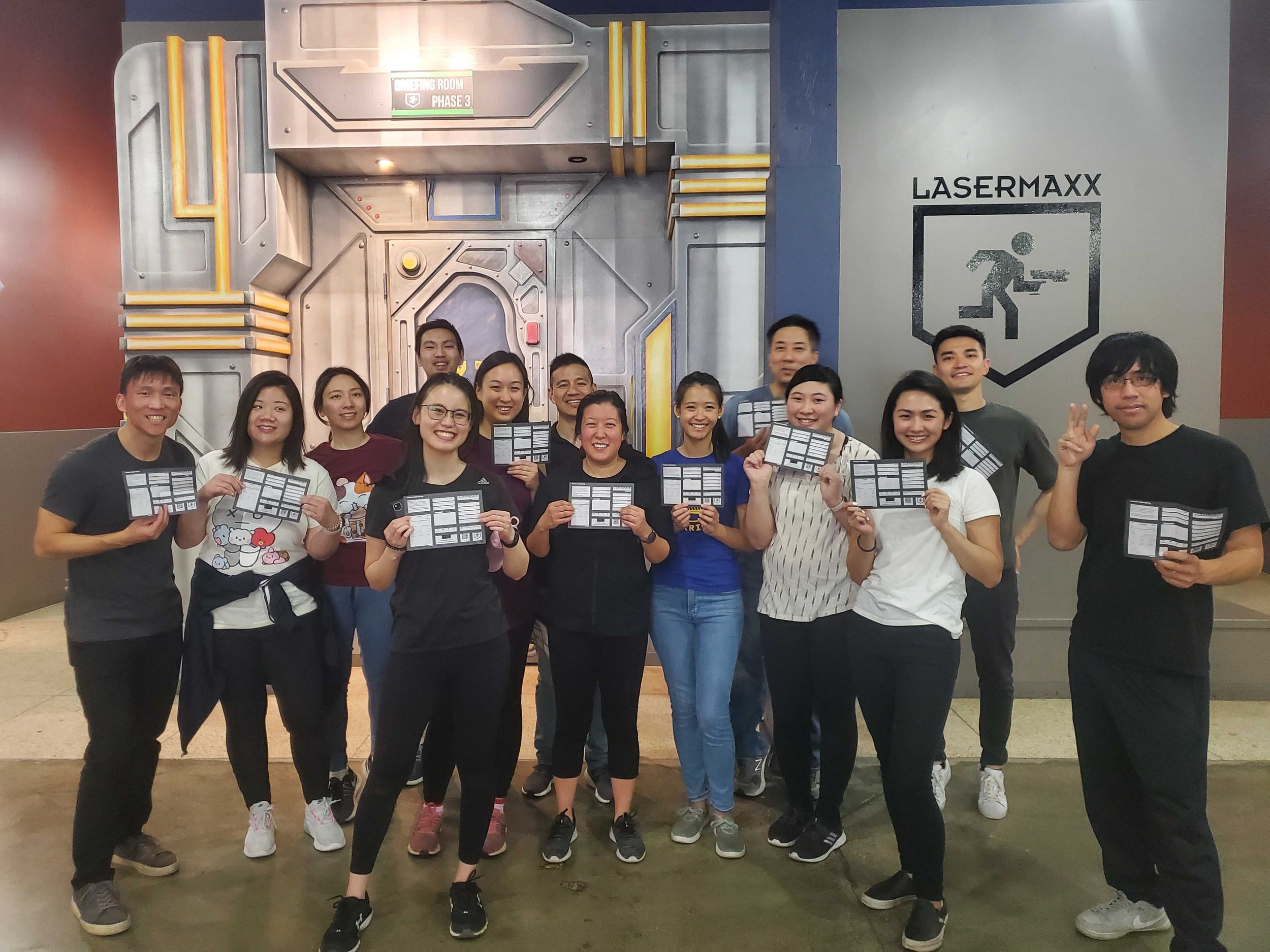
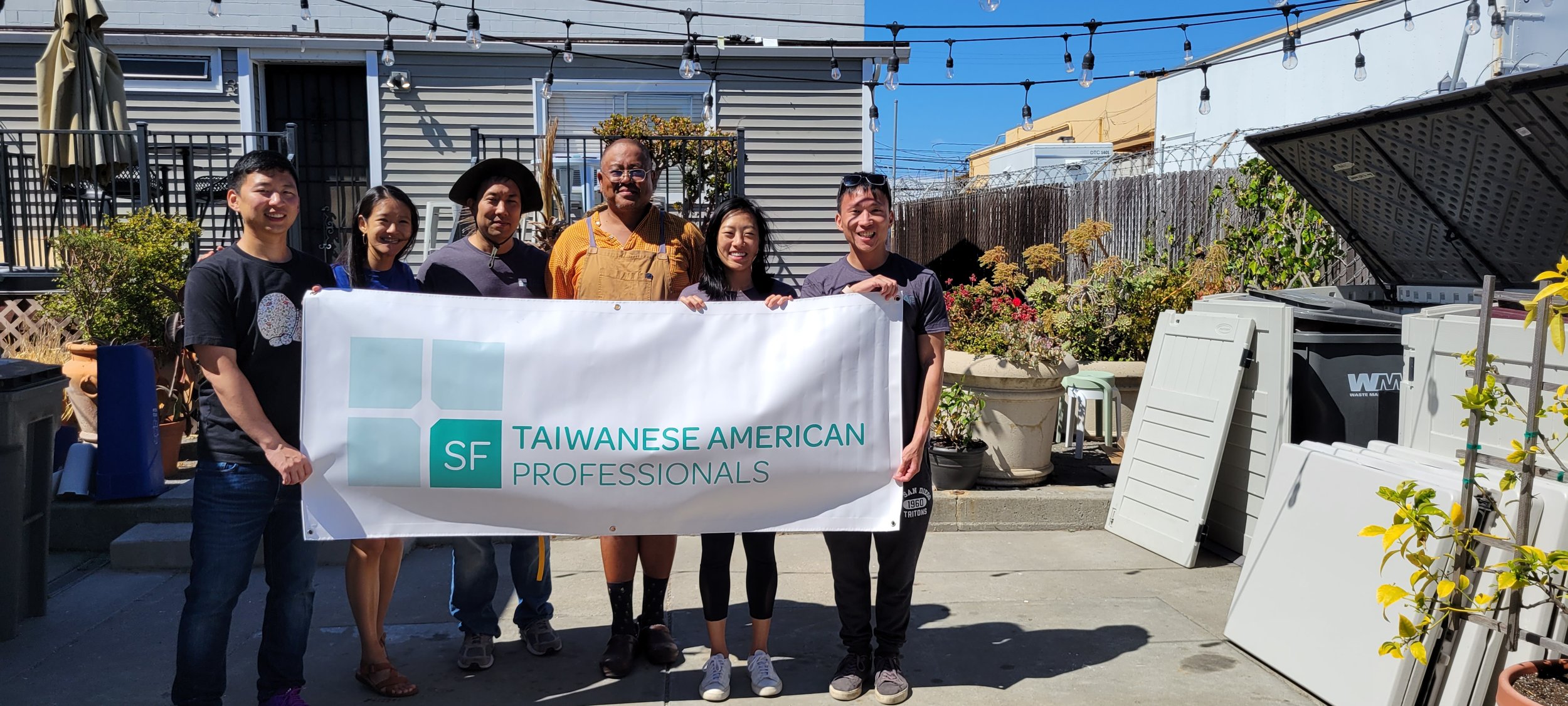
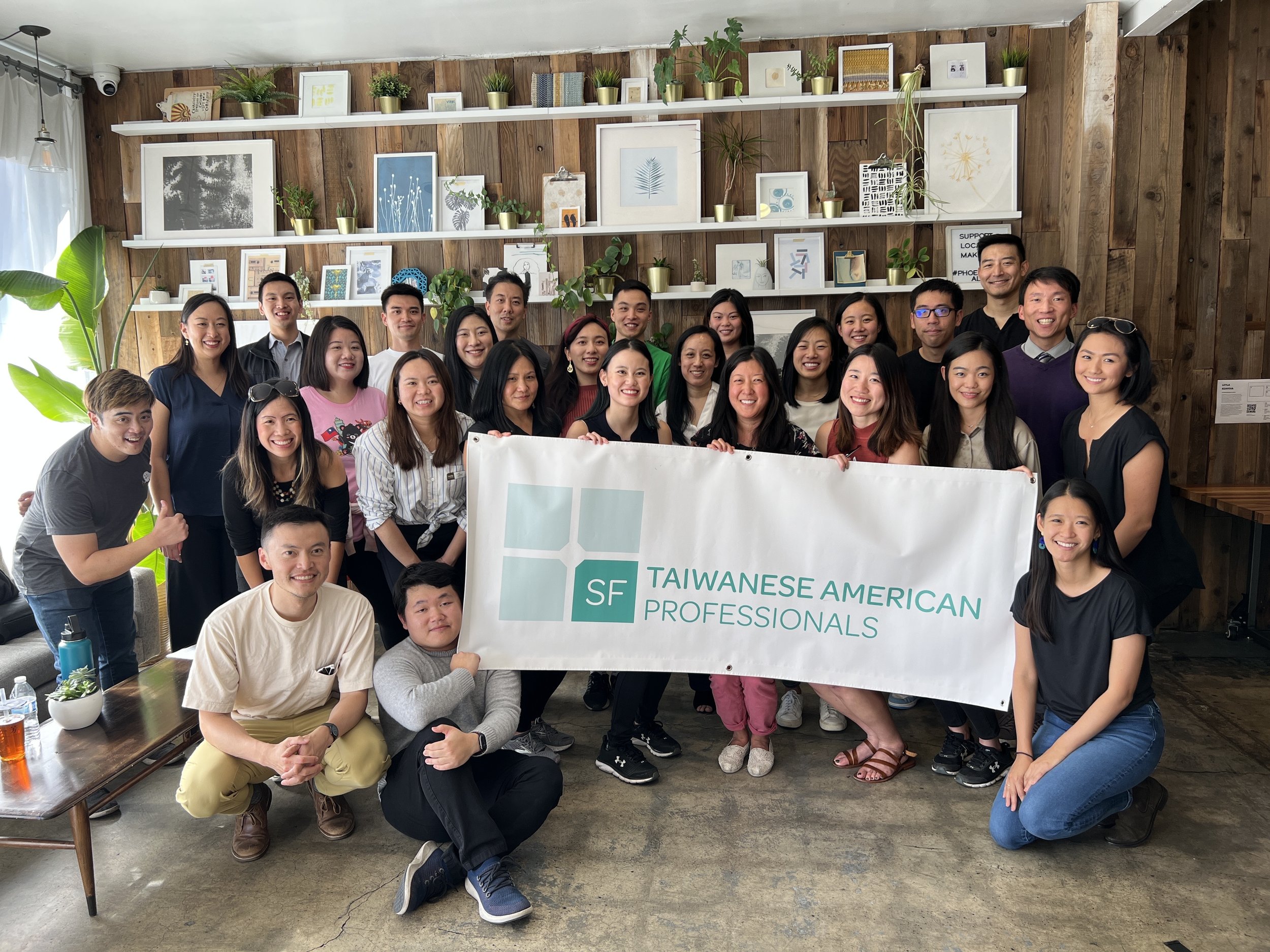
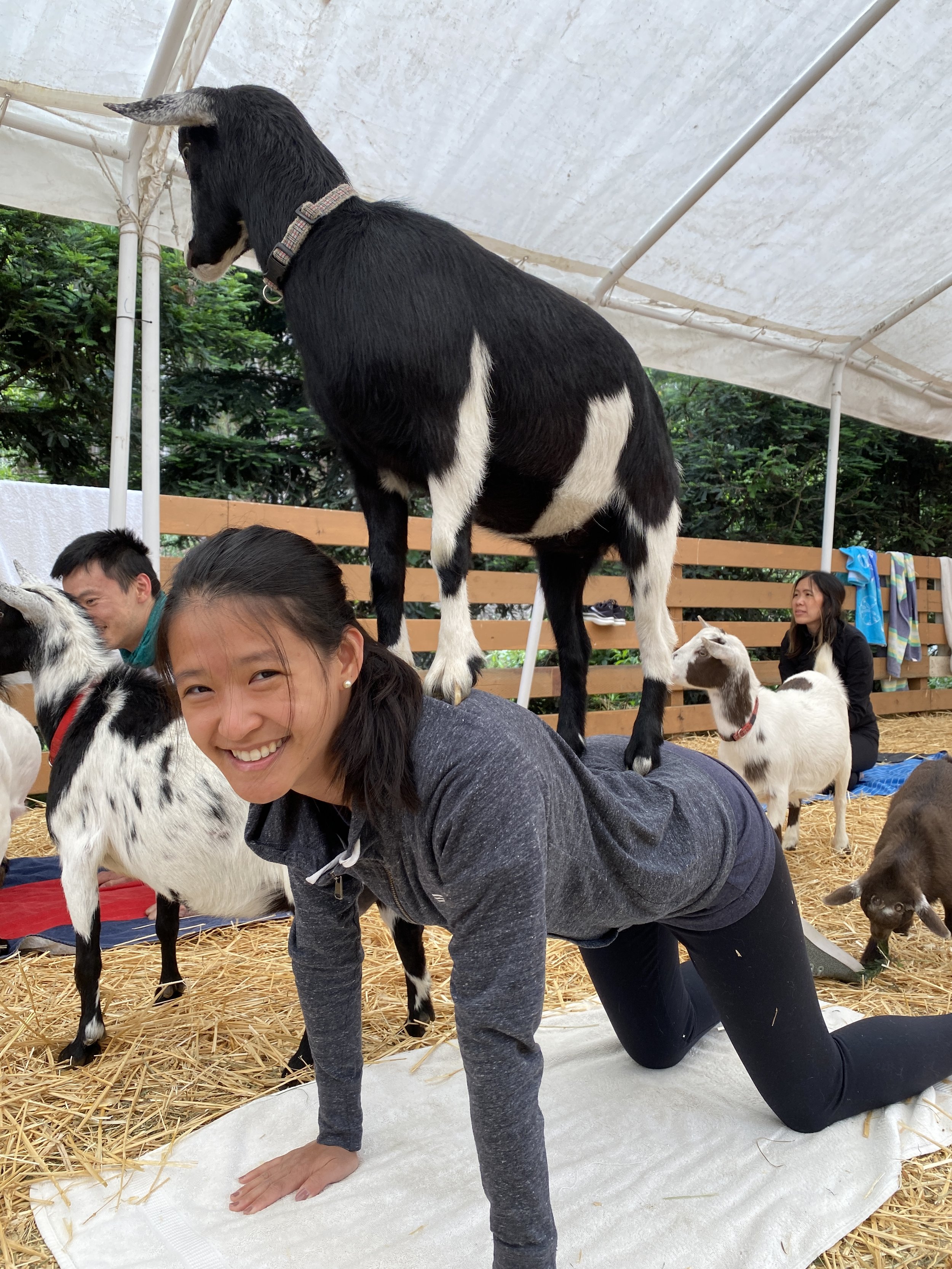
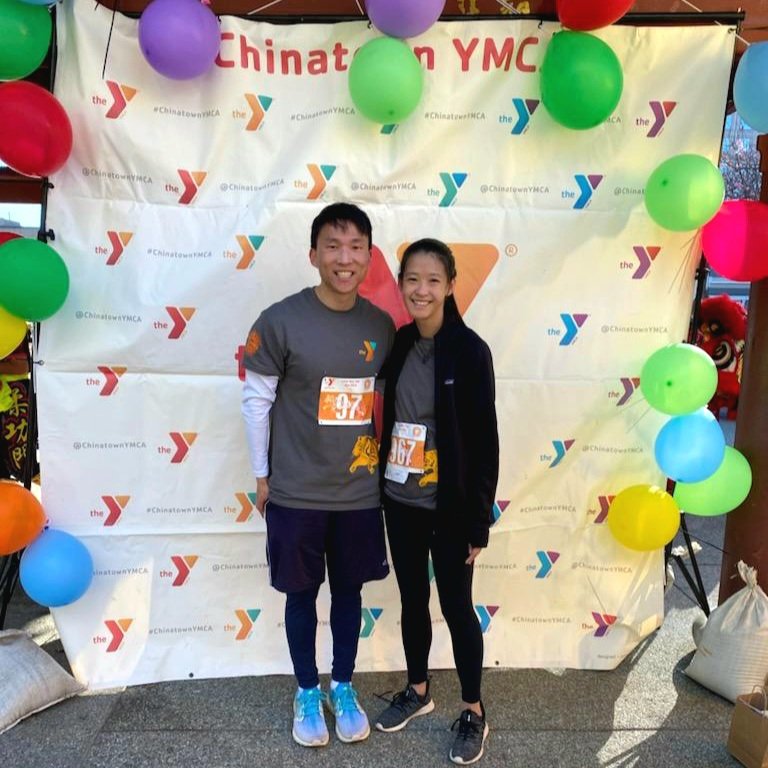
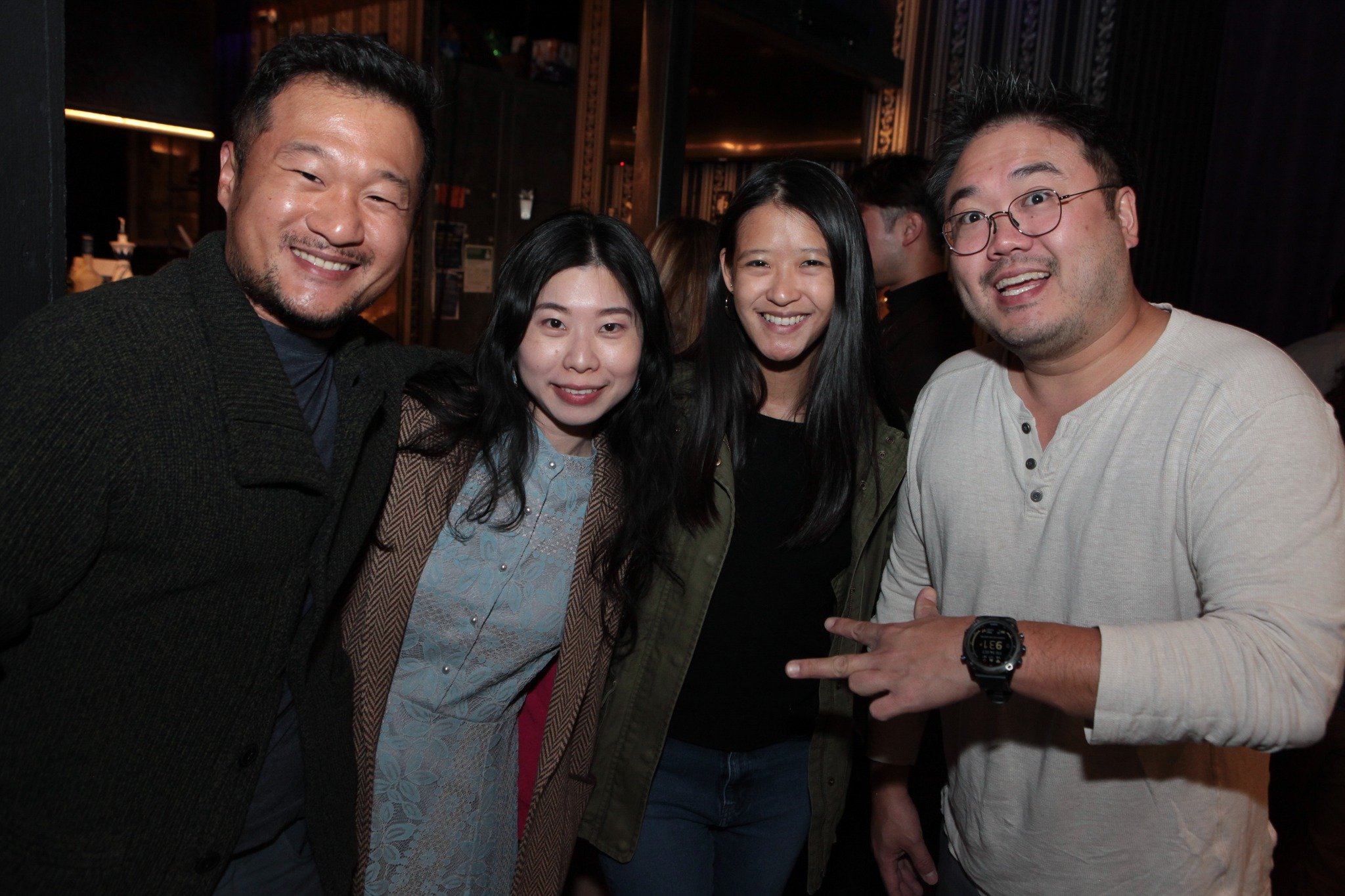
Happy National Bubble Tea Day!
“Boba has helped raise Taiwan’s profile as a rich, food-focused culture, and it has the potential to inspire curiosity and interest in all things Taiwan–its people, history, traditions, landmarks, and beauty.”
“Boba has helped raise Taiwan’s profile as a rich, food-focused culture, and it has the potential to inspire curiosity and interest in all things Taiwan–its people, history, traditions, landmarks, and beauty.”
It’s National Boba Day! To celebrate the occasion, we sat down with Olivia Chen, co-founder of Twrl Milk Tea—a Bay Area based beverage company that’s developed the world’s first canned milk tea made with pea milk and single-origin, non-GMO, organic tea—to ask her about her experience starting her company, her passion for sharing Taiwanese culture through her work, and her hopes for the future of Twrl.
In May, Twrl will be launching their newest product, Ube Milk Tea. This latest addition to their product line sources its ingredients straight from farms in Taiwan, paying homage to and celebrating the birth country of Boba Milk Tea — exclusive pre-ordering starts next month!
“My parents are immigrants from Taiwan and Pauline’s are from Hong Kong. Our parents are seeing the American Dream through the achievements of their daughters. We are sharing their stories including struggles as immigrants, our own experiences and being vocal about our presence and importance in society in the past, present and in the future. As AAPI founders, we want to overturn expectations and redefine what it means to run an American heritage brand.”
Read the full interview below.
1) What's the story behind Twrl Milk Tea?
Pauline and myself are long-time friends, moms, and daughters of immigrants passionate about producing the most refreshingly delicious artisanal plant-based milk tea and perfectly chewy boba toppings. We’re inspired by our Taiwanese and Chinese heritage and our values of health, innovation, and sustainability.
Twrl Milk Tea was born in Pauline’s kitchen here in the Bay Area. When the pandemic hit, everyone started to question life and priorities. We both separately felt a calling to do something we were truly passionate about — when Pauline asked me to partner with her on Twrl Milk Tea, I didn’t hesitate.
We spent over a year sourcing the highest quality ingredients—tea from single origin, fair trade, small family-owned farms. We’re proud of the award-winning milk teas we’ve created. Our tea leaves, once brewed, become compost for local farmers. The pea milk in our product is grown using 4x less carbon emissions than dairy milk, 85% less water than almond milk, and less fertilizer than oat and soy milk combined. We were the first in the tea category to use nitro infusion, giving our milk teas a smooth texture without added fats or creamers.
2) As a proud Taiwanese American, what does it mean to you to be able to share your love of boba with the world?
Working on Twrl has allowed me to connect my two worlds; my love for Taiwan and my Taiwanese roots and me as Taiwanese American. Growing up, I never felt quite like my other classmates; my family holidays didn’t quite look like the ones on TV. At Thanksgiving, it was turkey, fried rice, egg rolls and always tea. Bringing Twrl Milk Tea to life has allowed me to show this other side of me, the proud Taiwanese American that loves sharing the Chinese traditions I grew up with and the Boba Milk Tea culture that I love.
Both Pauline and I dream of growing Twrl Milk Tea into a heritage brand that exists in every fridge and pantry and will live for generations to come. Growing up, I didn’t see brands with founders that looked like us or that understood the cultural importance of our food. We’re excited about the future, and joke and wonder which of our kids will take over Twrl Milk Tea.
Creating a brand like Twrl Milk Tea that embraces our heritage and combines our backgrounds as Chinese/Taiwanese Americans is something we are extremely proud of. The best part is seeing the reactions of our parents. They are our biggest cheerleaders. My parents are immigrants from Taiwan and Pauline’s are from Hong Kong. Our parents are seeing the American Dream through the achievements of their daughters. We are sharing their stories including struggles as immigrants, our own experiences and being vocal about our presence and importance in society in the past, presently and in the future.
As AAPI founders, we want to overturn expectations and redefine what it means to run an American heritage brand. We are ushering a new generation of Boba Milk Tea with a craft non-dairy climate-friendly milk tea + boba toppings that aren't too sweet and brewed with loose leaf fair-trade single origin tea.
3) Milk tea was invented in Taiwan and has grown to be one of the most popular drinks today. What do you think is milk tea/boba's role in promoting the story of Taiwan?
It’s so amazing how the love of boba has spilled beyond Asians and Asian Americans to become popular globally. It’s the perfect culinary ambassador–a drink you can chew is such a uniquely Taiwanese delight. Boba has helped raise Taiwan’s profile as a rich, food-focused culture, and it has the potential to inspire curiosity and interest in all things Taiwan–its people, history, traditions, landmarks, and beauty.
For our newest flavor launching in June, we source our Ube from a Taiwanese multi-generational farm in Chia Yi 嘉義縣. Our Mulberry Tea Leaf is from a third generational Taiwanese father-son owned farm in Miaoli 苗栗縣. This new release pays homage and celebrates the birth country of Bubble / Boba Milk Tea. I am excited to be producing and sourcing from Taiwan for an authentic milk tea that supports local Taiwanese farmers. We’re ushering a new generation of Milk Tea and Boba Milk Tea drinkers with an authentic craft non-dairy climate-friendly milk tea + boba toppings that isn’t too sweet made with loose leaf fair-trade single origin tea. Consumers are looking for great-tasting, convenient, easy to grab-n-go drinks that focus on premium ingredients, low sugar, and less calories.
4) Which product(s) in the Twrl lineup are you most proud of?
Picking the flavor I’m most proud of is like picking a favorite child – I love all 3 of our original flavors for different reasons!
Our Taiwan Style Black Milk Tea is truly an homage to the first modern boba black milk tea that was created in Taiwan back in the 1980’s. We took this inspiration and searched nearly 6 months for just the right black tea and found a single-origin dragonwell black tea with cinnamon and chocolate notes. This is our classic, our original, and one that I will always love.
The inspiration for our Hojicha Roasted Green Milk Tea came from Pauline’s trip to Japan. Travel has always been a big part of her life, and she first discovered Hojicha tea in Japan over 15 years ago. The sweet, earthy, nutty aroma was so distinctive and delicious! She never forgot this flavor and when she started Twrl, she knew Twrl’s Hojicha Roasted Green Milk Tea had to be one of the 3 launch flavors. Hojicha has also been our customer favorite and has sold out quite a few times!
We call our Jasmine Pu’erh Milk Tea “supreme” because that’s what it is — a superpowered plant-based milk tea made from a fermented single-origin pu’erh tea. This tea is grown from wild, zero-intervention trees in one of the most remote tea growing regions in the world. The giant buds from these 300-year old wild trees are carefully and slowly pile-fermented to bring out a deep rich sweetness. This result is a super charged tea with 3x more antioxidants than a regular cup of green tea. We then infuse it with pure Jasmine oil (no fake flavoring!) to create a complex, smooth and uniquely floral Jasmine Pu’erh Milk Tea.
To make naming a favorite product even more difficult, we just launched 2 new boba toppings that are the perfect pairing for our milk teas.
Our Brown Sugar Boba is the instant version of your favorite tapioca boba with just the right amount of sweetness, texture and perfect QQ.
Our dye-free Jelly Boba is delicious with a subtle lychee flavor. It’s made with konjac (a root vegetable) and is a low calorie boba topping. It has just the right amount of chewiness and best of all, it's ready to eat — no cooking required!
We will also be launching a new caffeine-free Ube Milk Tea flavor in June 2023 with exclusive pre-ordering in May 2023 on www.twrlmilktea.com!
Our Ube Milk Tea is inspired by our founder, Pauline Ang’s upbringing in Hawaii where Ube pancakes and ice creams were part of her childhood treats. A quest to bring Ube Milk Tea to a convenient grab’n’go can led us to the beautiful countryside of Taiwan where our co-founder Olivia Chen's family is from and where our nutritious Ube (oo-bae) is farmed and harvested by multi-generational farmers known for their famous Ube. Carefully brewed with single sourced loose leaf organic Taiwanese mulberry leaf tea — great for heart health and known to lower inflammation and oxidative stress — to create a better-for-you, caffeine-free Ube treat for the whole family!
✨ Fun Fact: Our organic mulberry tea is made using upcycled tea leaves! Run by a third generation father/son team in Taiwan, our mulberry farm uses only the bottom 90% of their tea plants for silkworm feed. The top 10% (the tender baby tea leaves), normally wasted, is being used to brew our Ube Milk Tea!
5) What's the "next big thing" for Twrl Milk Tea?
For 2023, we hope to triple in revenue through our new products and our expanded distribution. We’re launching 27 Bristol Meyers, Central Market and Woodland Market locations and online on Weee. We are twrling in excitement and NEED your help.
To keep our plant-based Twrl Milk Tea and Twrl Boba Toppings on shelf and online, Twrl needs to twrl off the shelves and into your fridge and pantry. So, shop in stores or online. Tell your friends and family.
Your purchase, your support speaks volumes. Your purchasing power shows retailers that a Taiwanese and Chinese American heritage inspired brand is what consumers want to see on shelf.
Let’s show Retail Buyers that representation matters. We care about who is behind the flavor profiles, who is the creator behind the company and who are the people sharing the cultures of food we all grew up with.
Board Games and 'Blank Spots': February #Snapshot
February was a short month, but there was no shortage of events or activities for TAP-SF during that time! We managed to squeeze in four events last month, doing everything from wildlife watching to hosting engaging discussions about Taiwanese history and identity.
Here’s our February #snapshot.
February was a short month, but there was no shortage of events or activities for TAP-SF during that time! We managed to squeeze in four events last month, doing everything from wildlife watching to hosting engaging discussions about Taiwanese history and identity.
Here’s our February #snapshot:
February 11: Elephant Seal Walk
A wild adventure watching wildlife: on a breezy and sunny Saturday, TAP-SF ventured down to Año Nuevo State Park for a quick bite before embarking on a guided hike to observe northern elephant seals migrate back to the San Mateo coastline.
Check out our event highlight on our Instagram page (and give us a follow if you don’t already)!
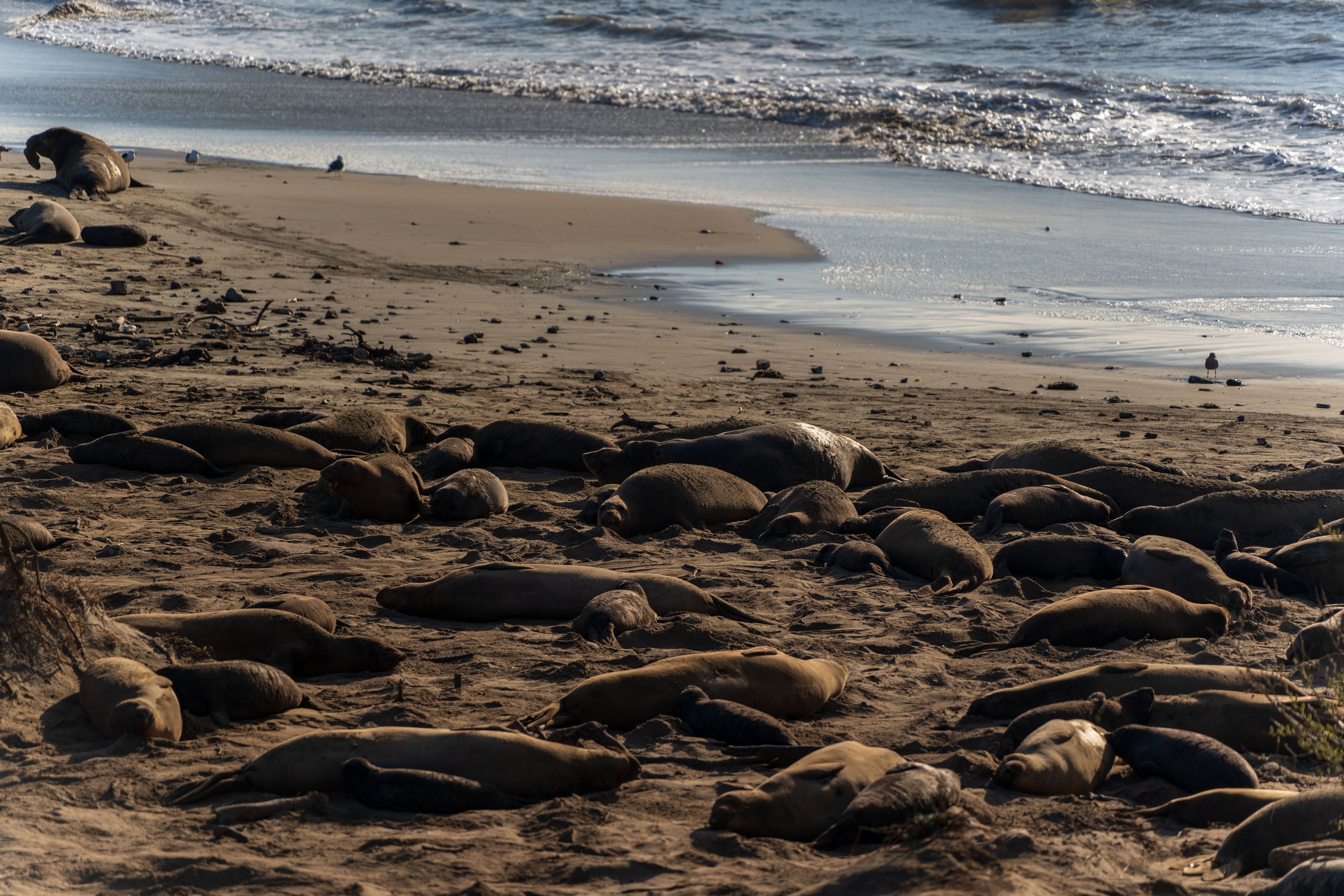
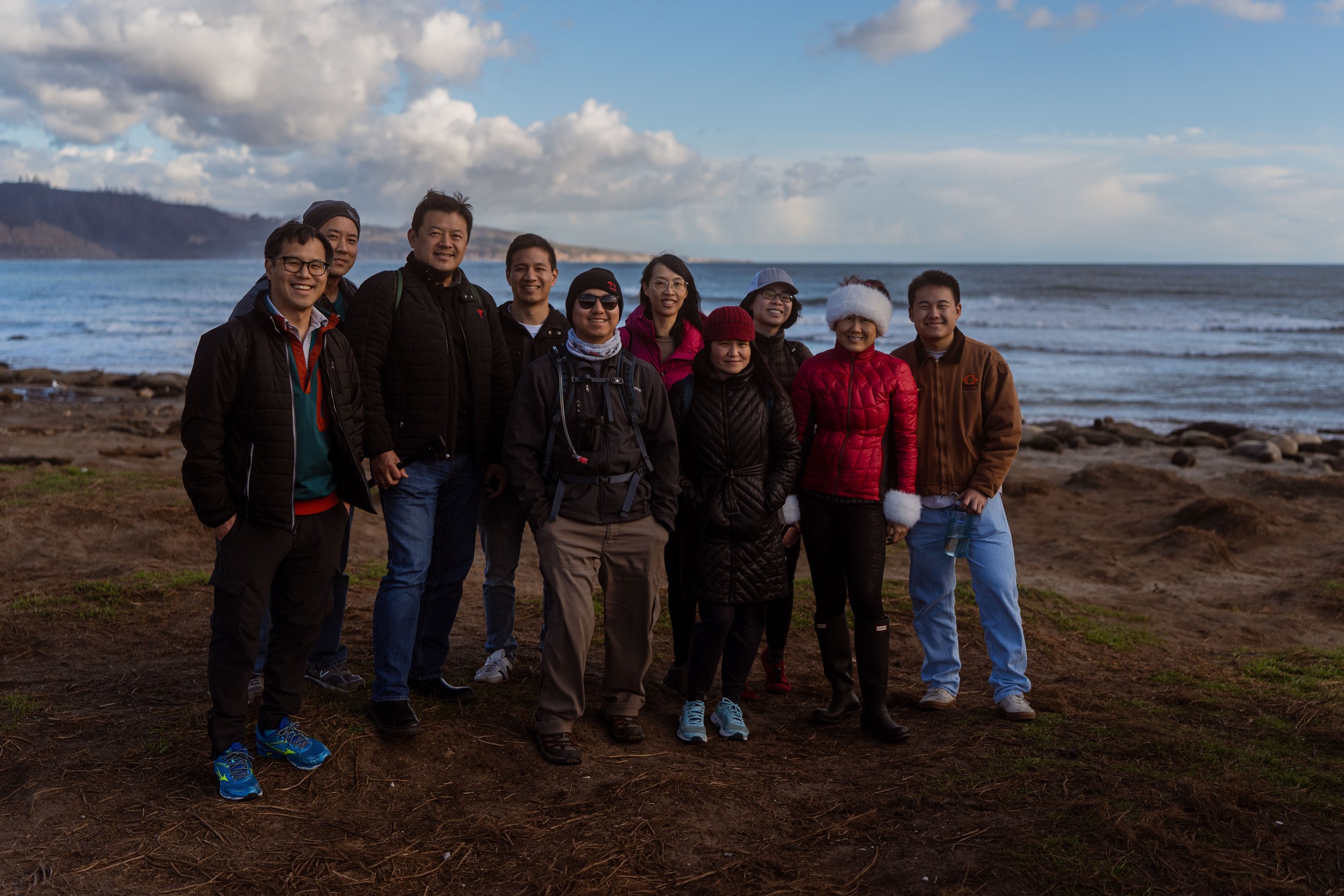
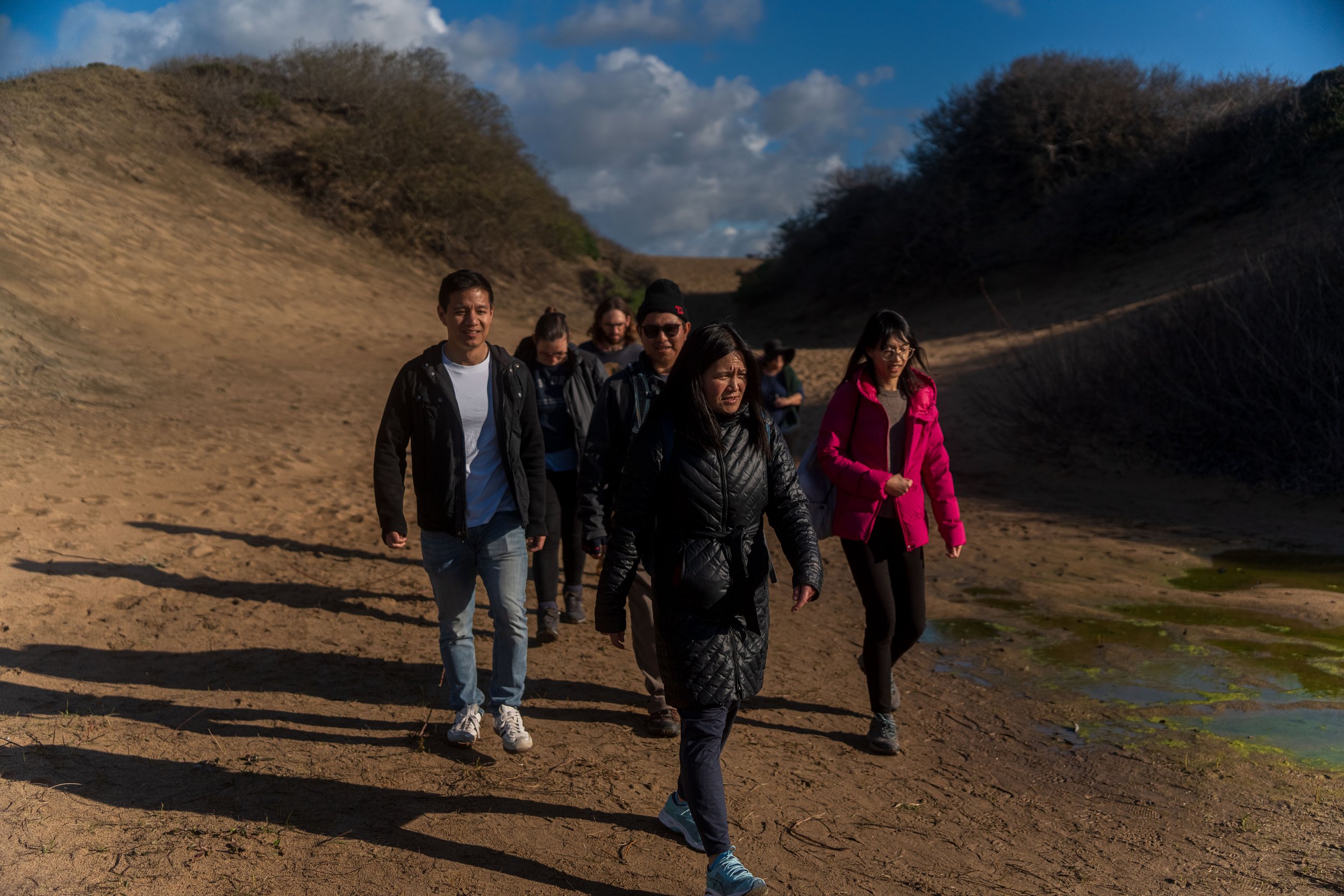
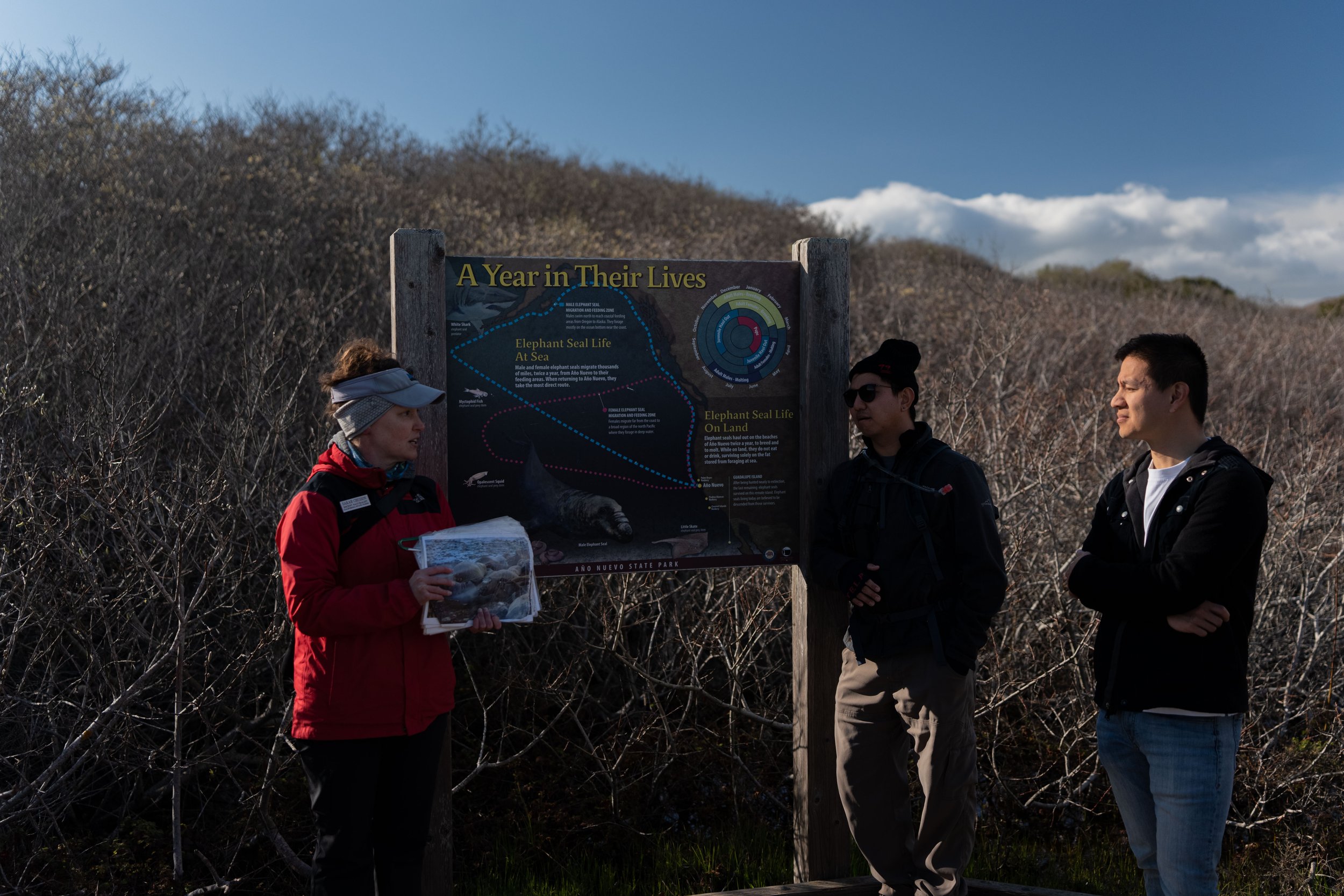
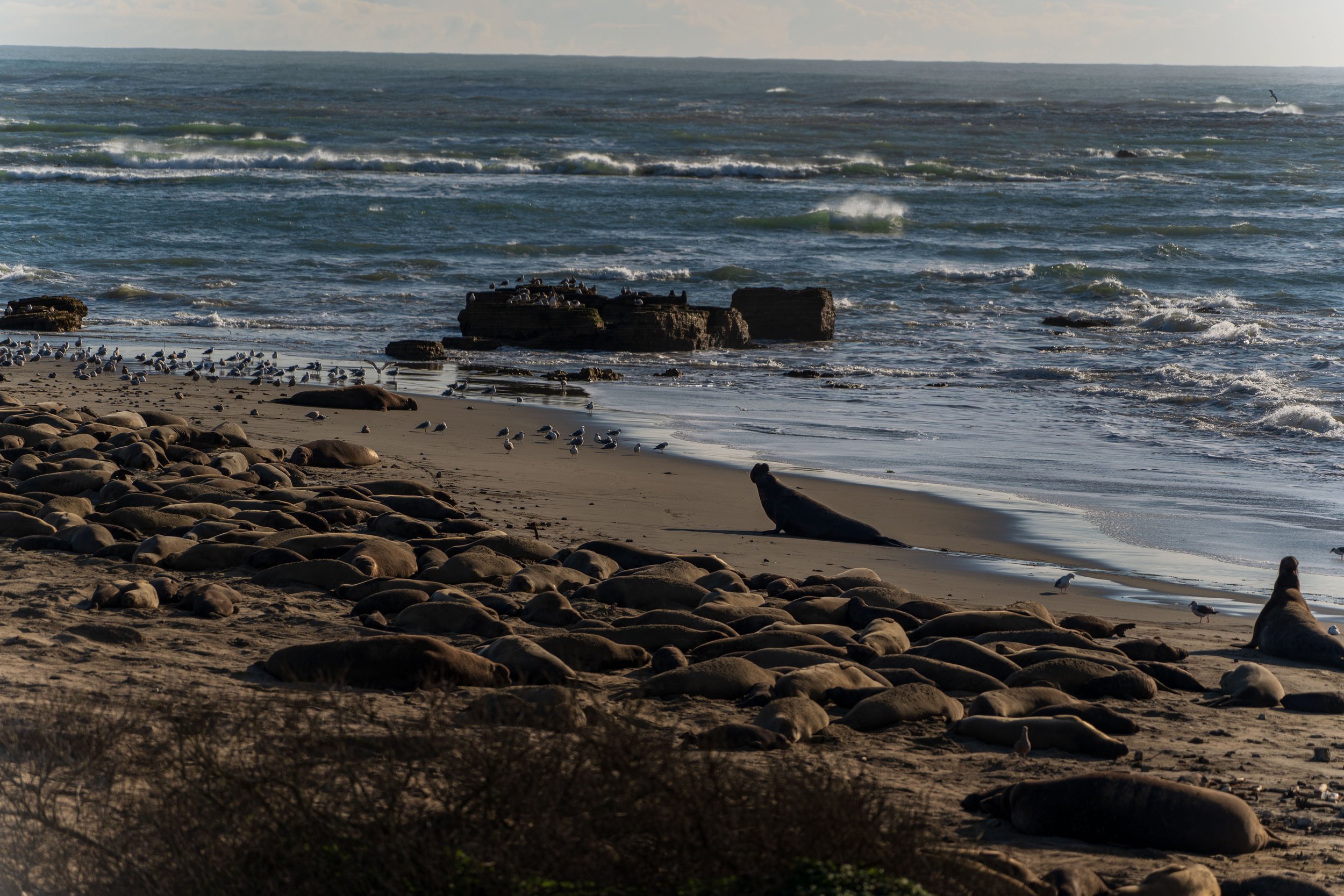
February 15: Dinner with TAP-SF in Mandarin at Burma Love
Another month, another ‘Dinner with TAP-SF’! Cultural committee members Amy and Kellie organized a second installment of our popular dinner series in Mandarin, hosted at Burma Love in San Francisco. The homey restaurant ambiance paired with casual conversations allowed participants to connect with each other quickly and comfortably.
Note: Given the overwhelmingly positive interest in our event (that sold out impressively quickly), we’re excited to plan more dinners for you to look forward to! If you didn’t get a chance to attend this dinner, please follow our Facebook page to be notified when we host more small group dinners throughout the year — they are a great way to get to know people in a smaller, more intimate group setting. Attendees are selected on a first come, first serve basis. We’d love to see you!
February 18: The Blank Spots of Your Taiwanese Family History
It’s no secret that intergenerational communication can be challenging. But why is that? To help answer this question, TAP-SF partnered with Eric Tsai, co-founder of OFTaiwan and content producer at TaiwanPlus to conduct a workshop discussing the role that Taiwan’s nuanced history plays in these communication challenges. Drawing upon his personal experiences with his own family, Eric offered approaches and potential solutions for audience members struggling with similar challenges. Following a lively Q&A, our group traveled to Gott’s Roadside in San Francisco to continue discussions over burgers and beer.
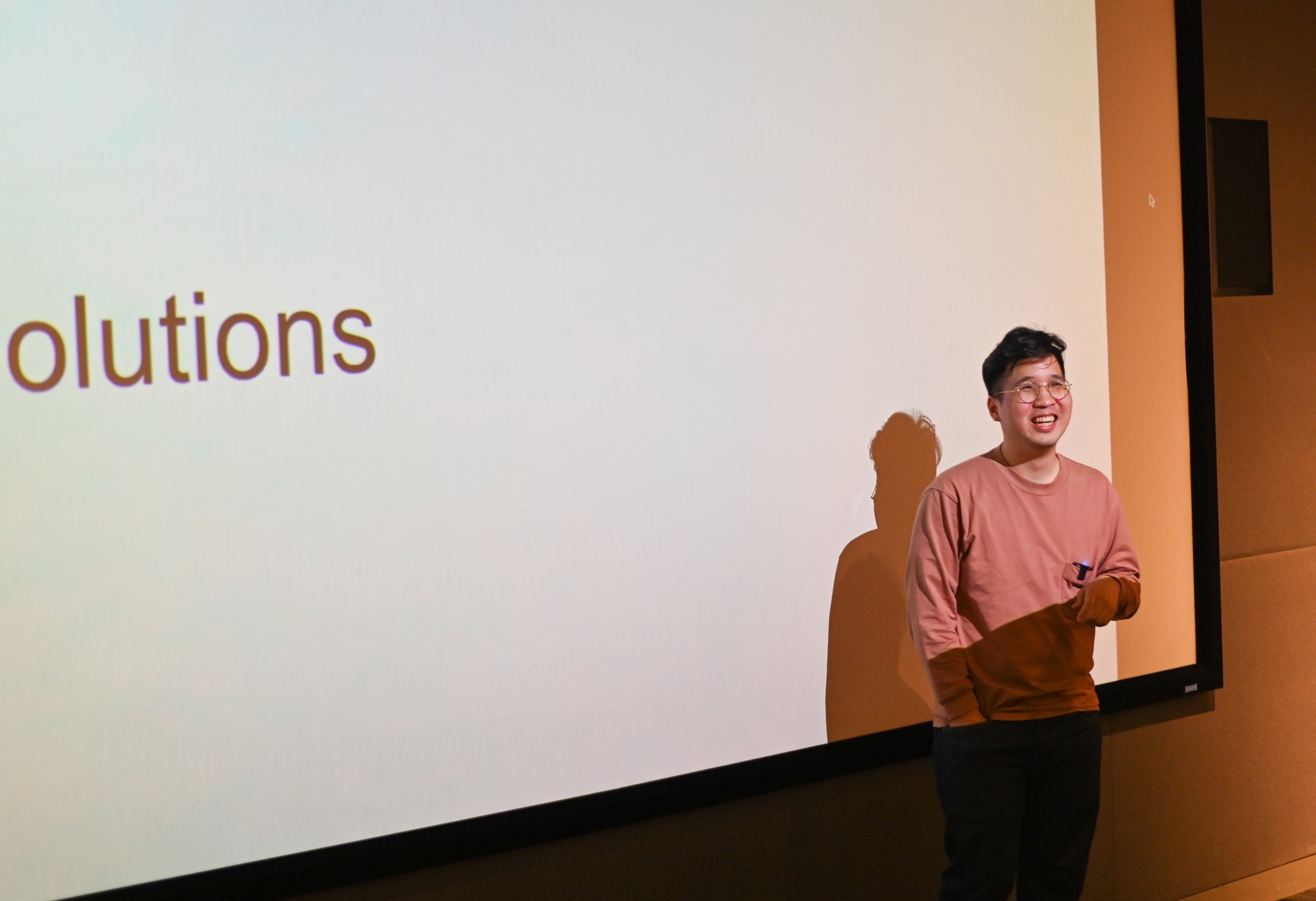
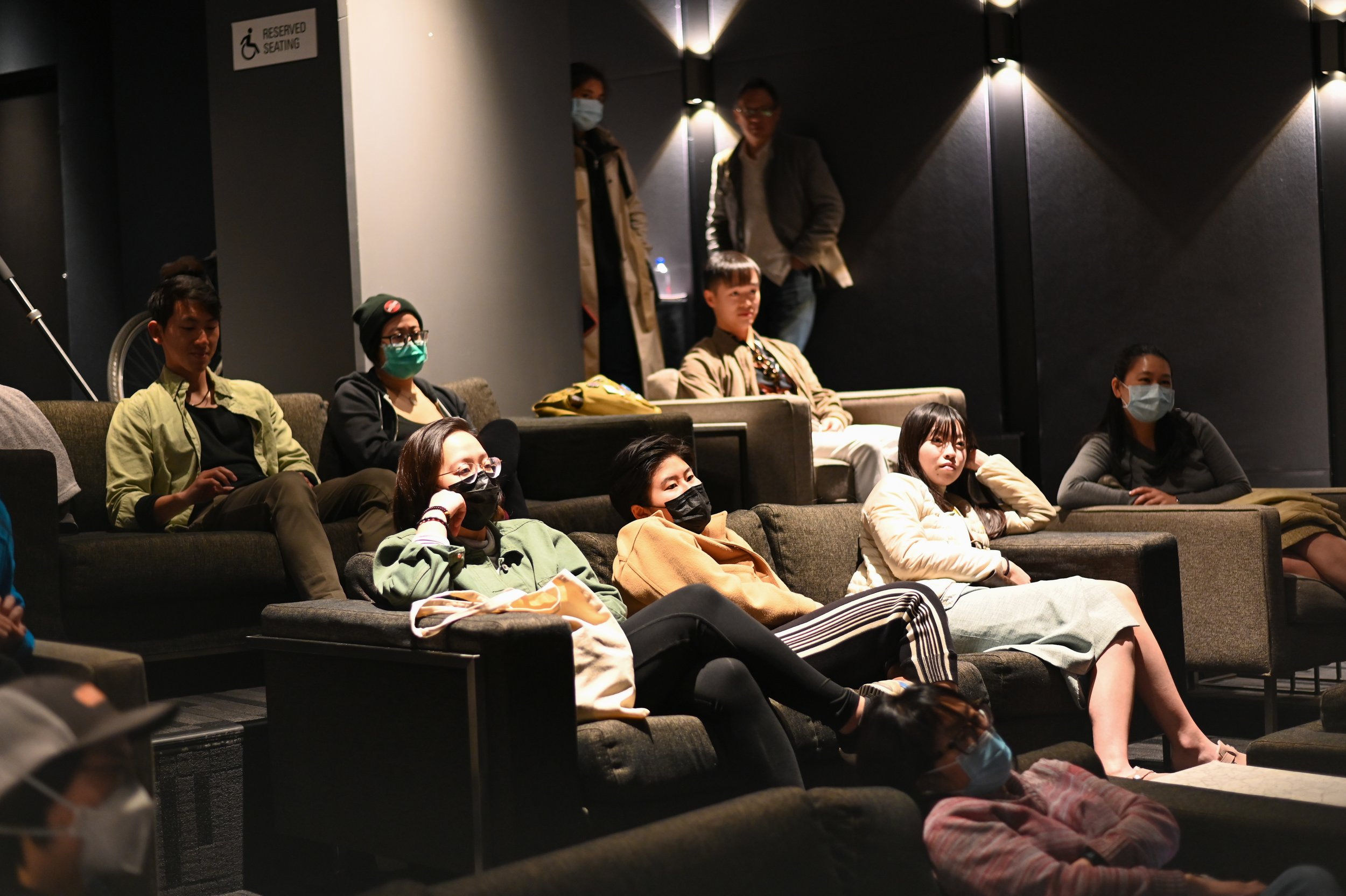
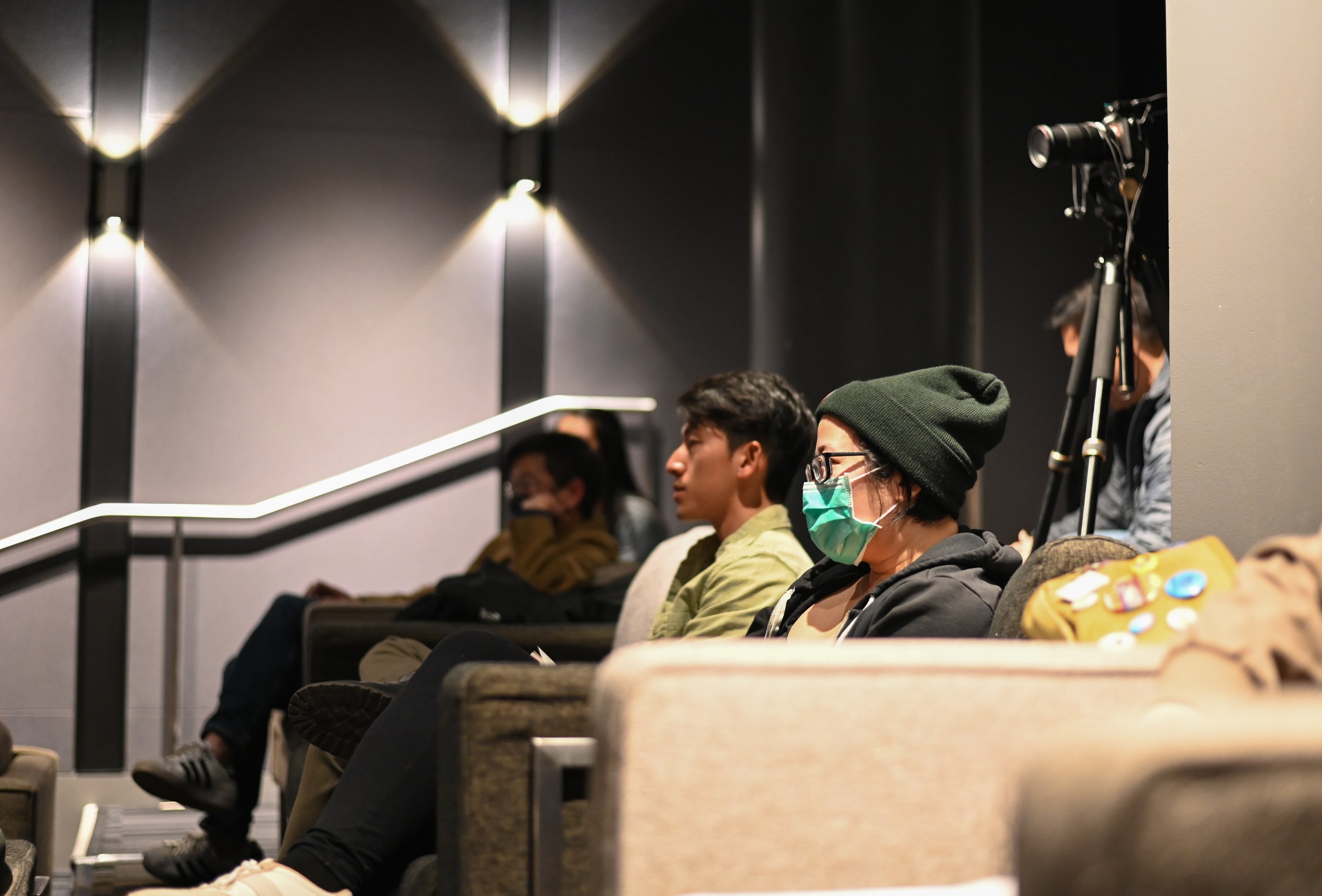
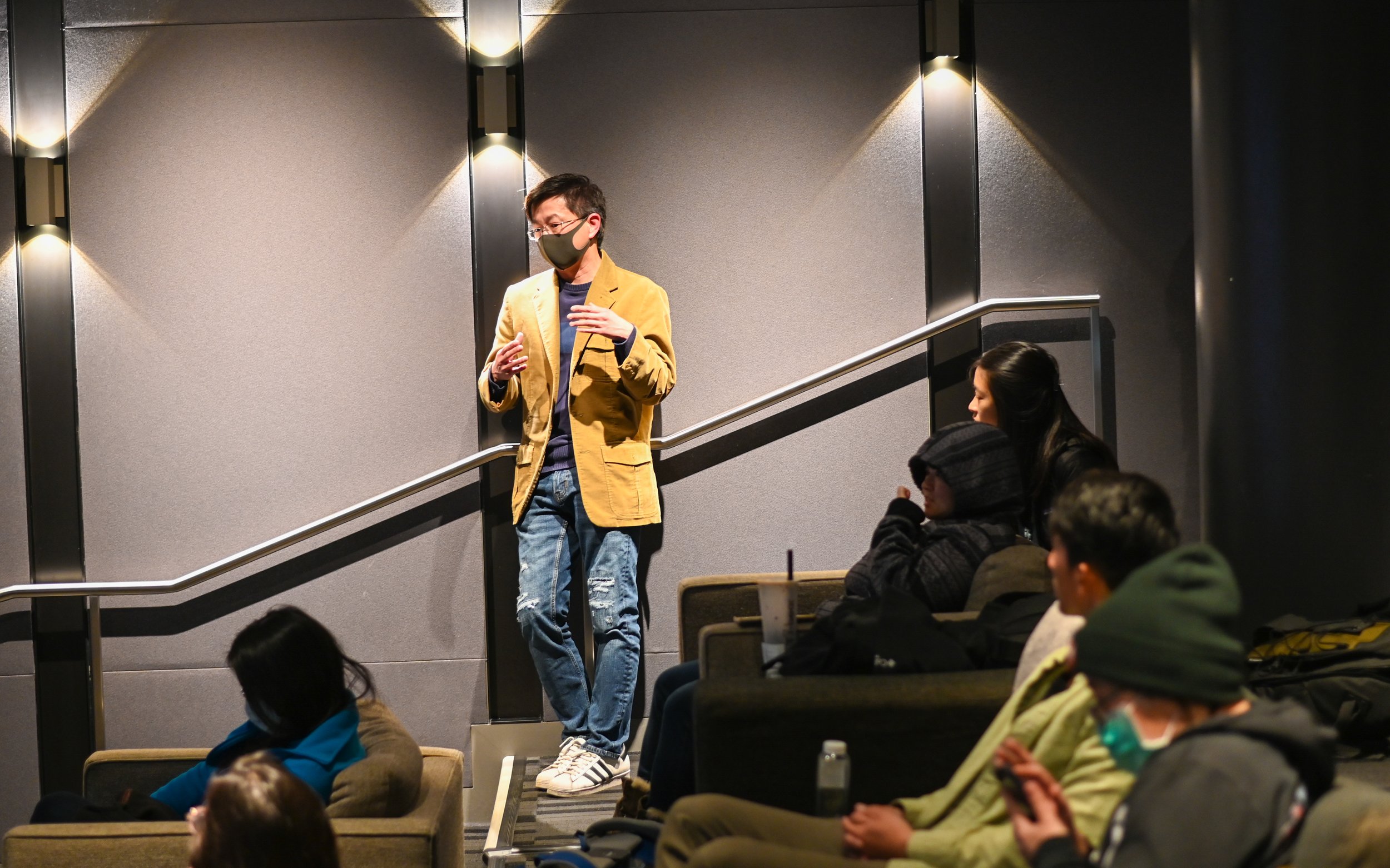
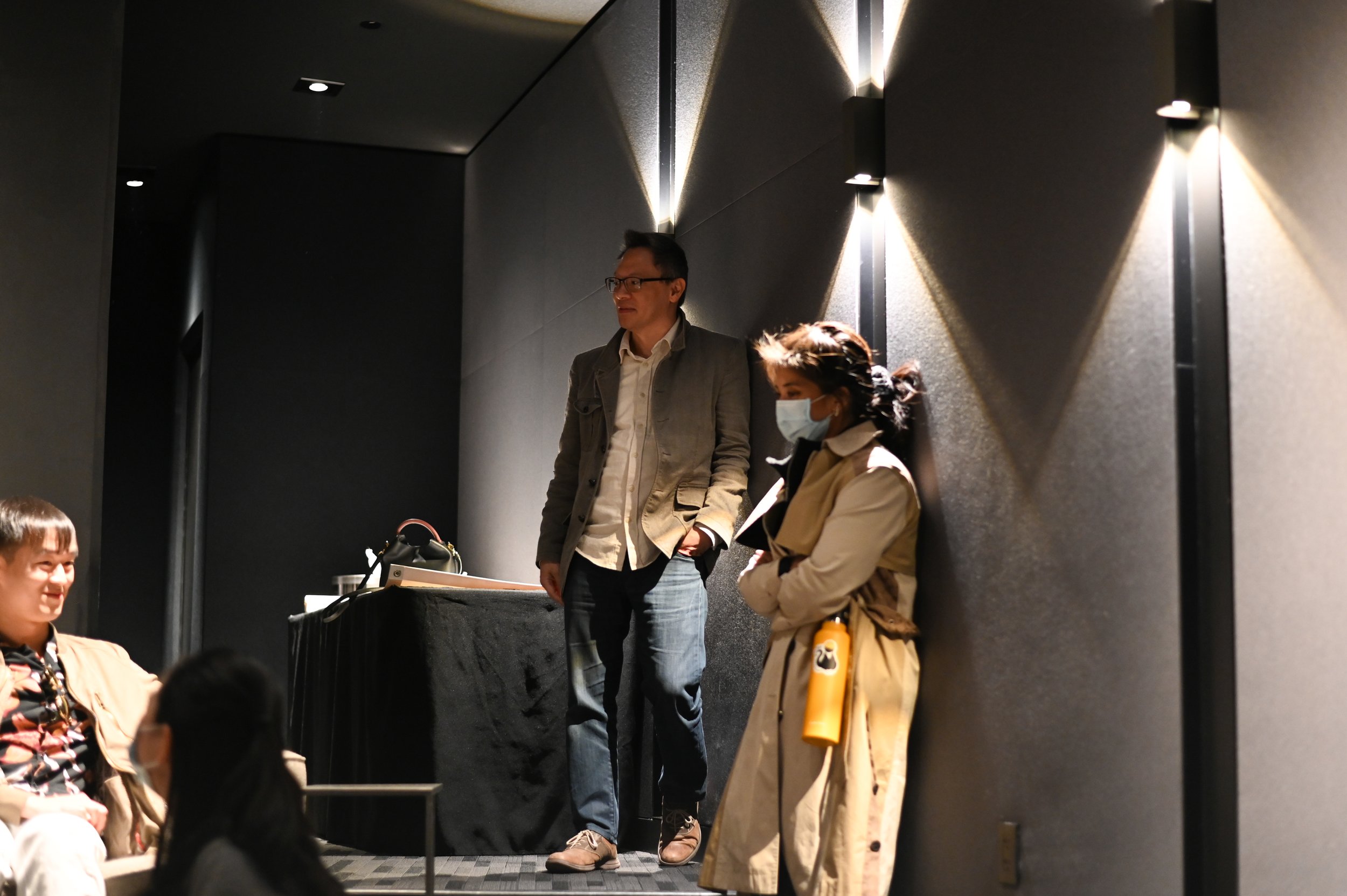
February 26: Board Games at Games Kastle
The competition is on! Towards the end of the month, social committee member Edward hosted our second in-person board game event at Game Kastle in Santa Clara! 19 participants joined for an afternoon of friendly competition playing games like Monopoly Deal and Saboteur.
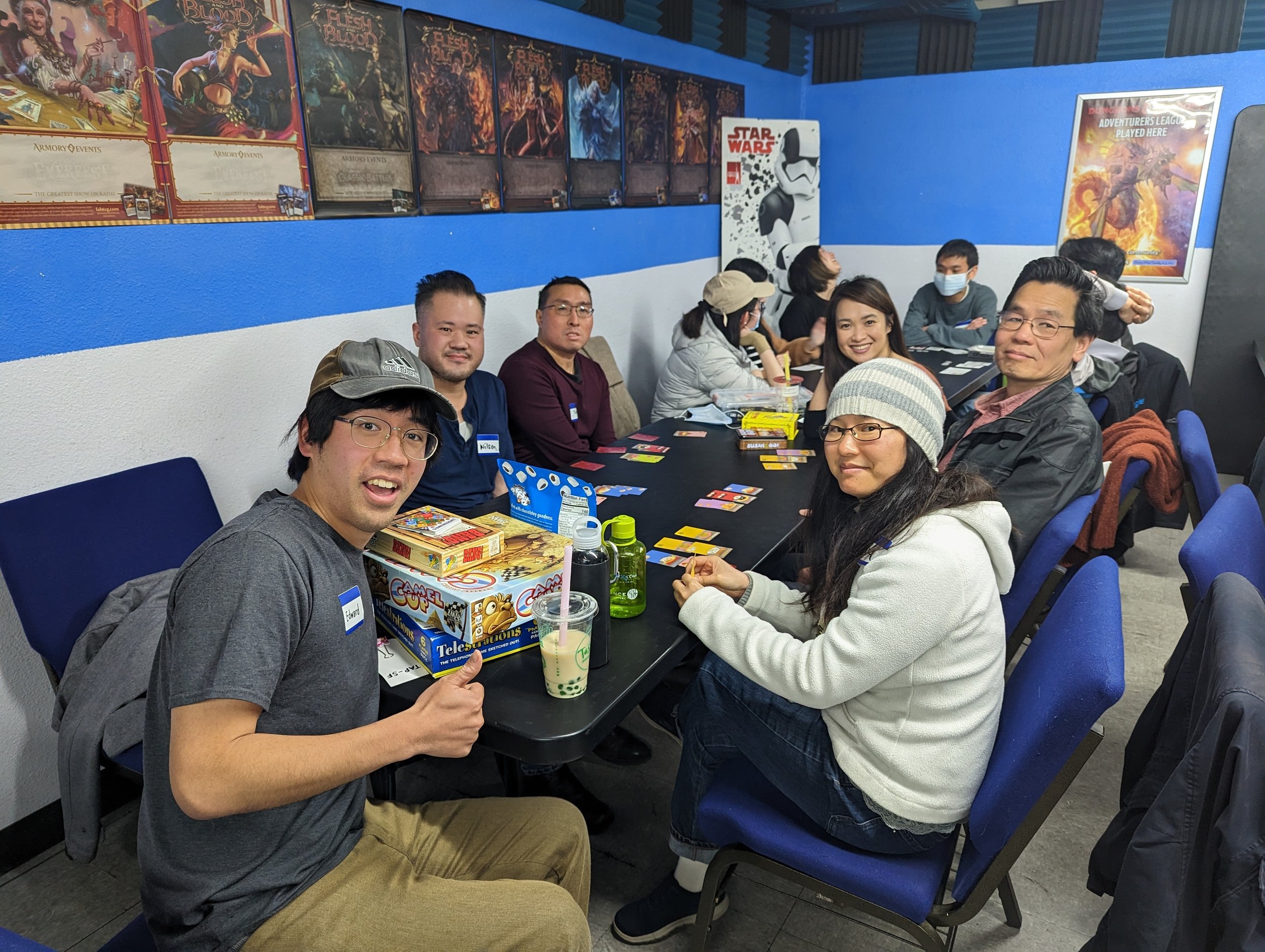
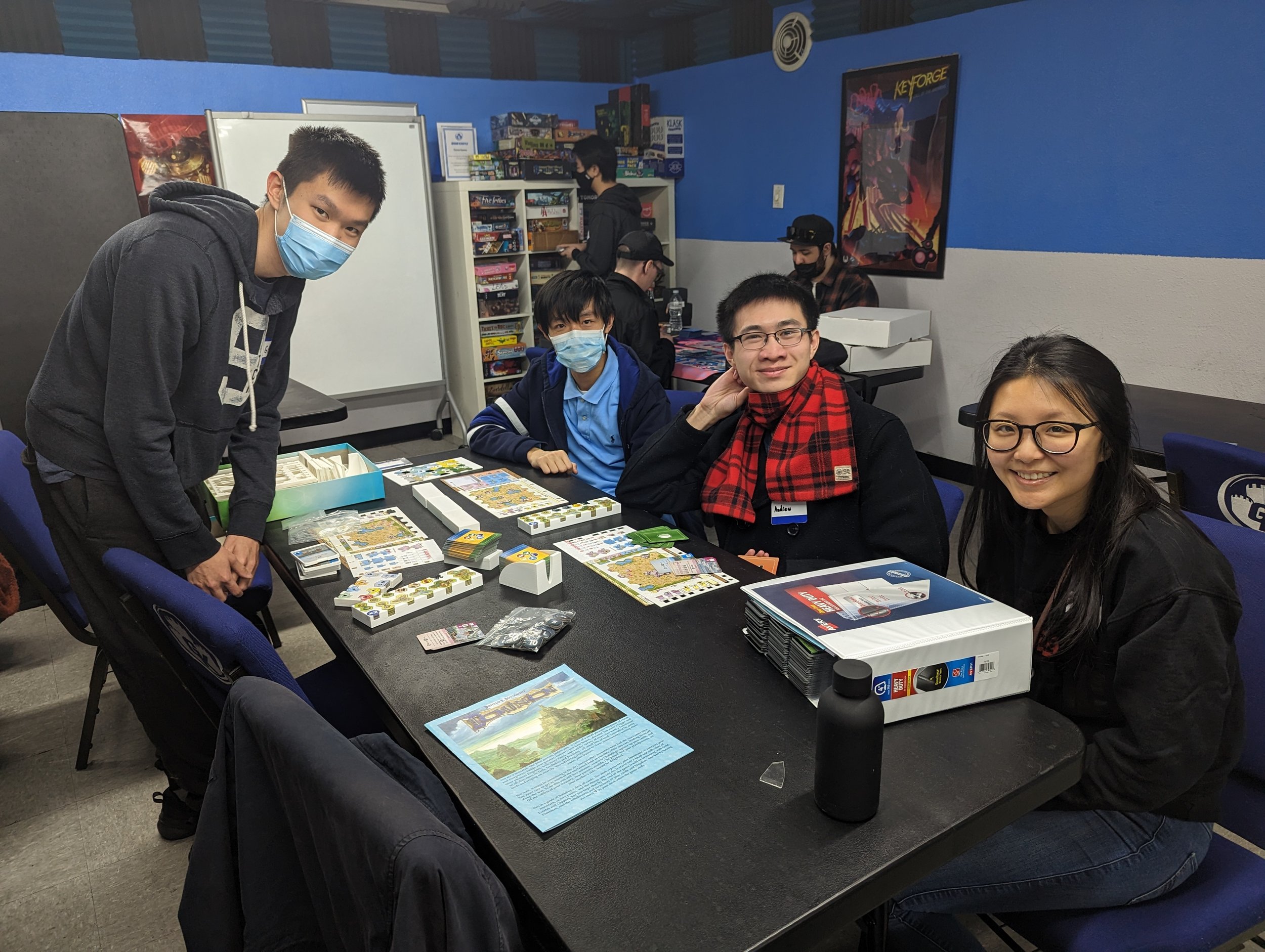
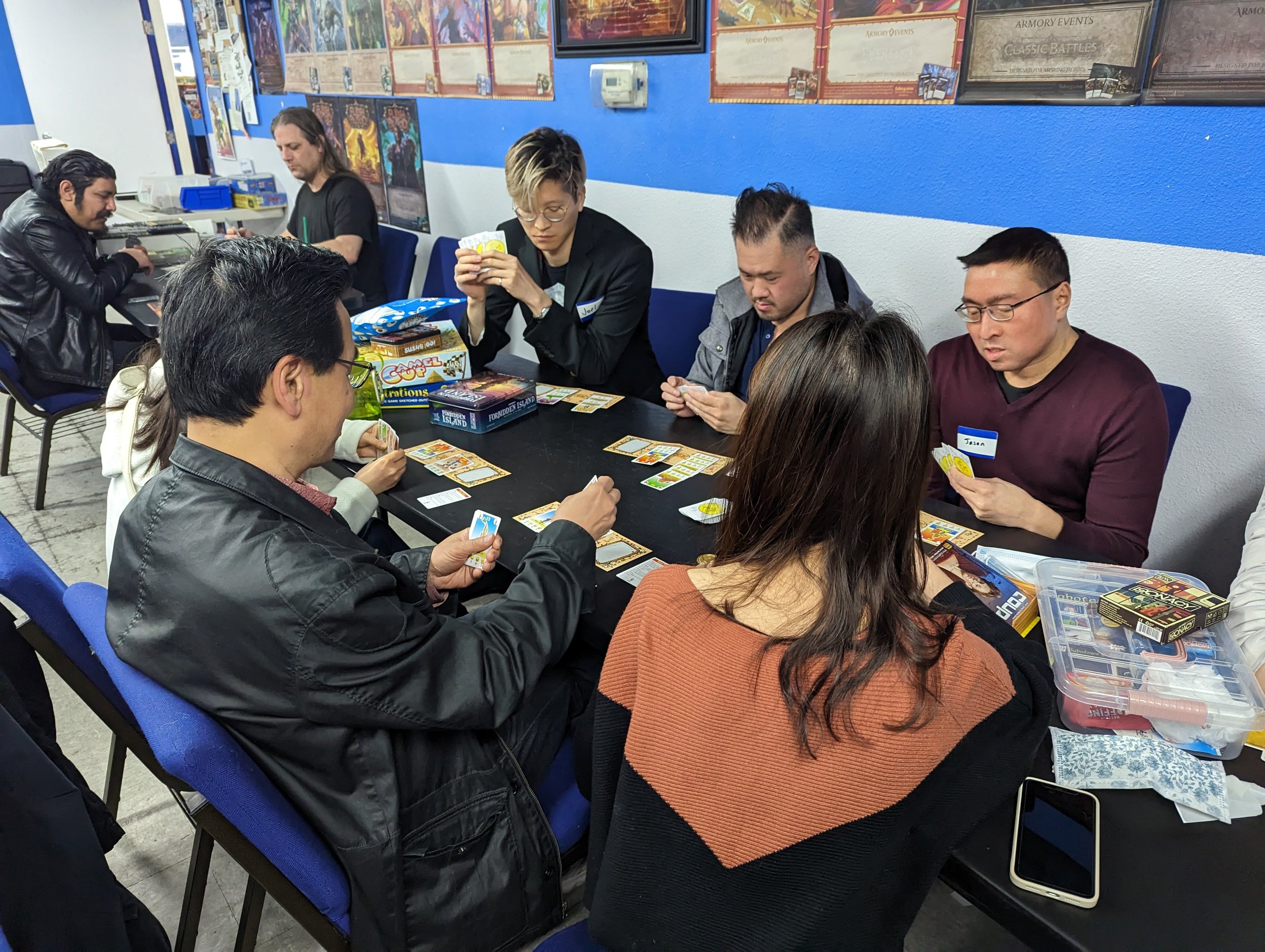
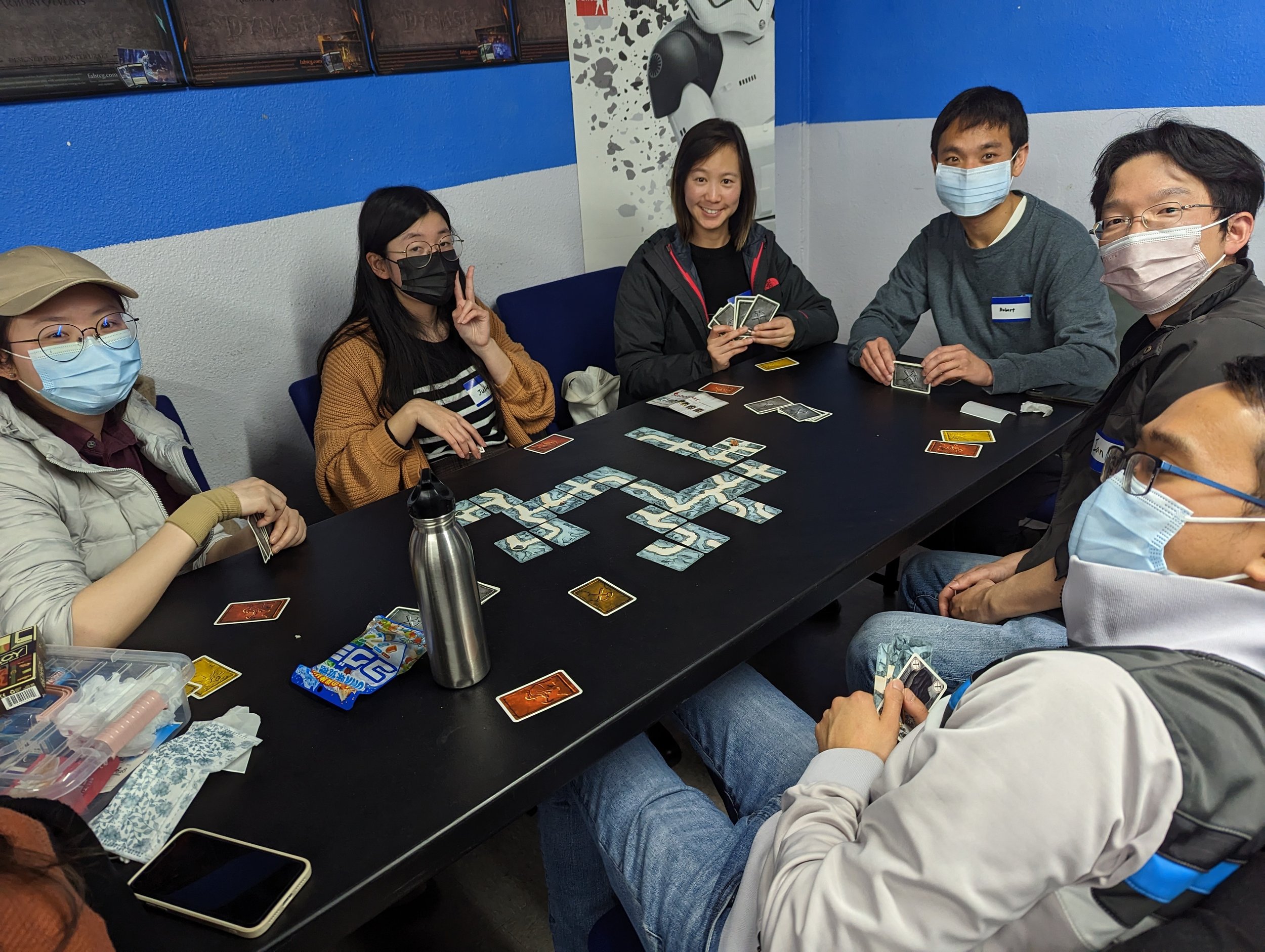
We hope to see you at one of our upcoming March events!
#Snapshot is a monthly blog series by TAP-SF featuring a roundup of our latest events, activities, and experiences.
To Friend or Not to Friend? — Friending for Grownups with Dr. Christine Chang
Why is it so hard to make friends? How do I make friends as an adult? Dr. Christine Chang, PhD, shares practical tips and advice for cultivating healthy relationships and making friends as an adult. She also shares insights on the mental health conversation as it relates to the Asian American community and the importance of holistic care.
Did you know: 70% of Americans do not find it “easy” to make friends? But why exactly does it feel like such a herculean task to make friends, especially as we get older? From reduced stress levels to improved life satisfaction, countless studies have recounted a plethora of benefits to having strong relationships and a bustling social network, yet the question remains — how do I get these friends? How do I build these connections?
According to the 2021 American Perspectives Survey, 49% of Americans stated they had 3 or less close friends, with 12% of individuals self-reporting that they had no close friends at all. To take a stab at this friendship issue, we partnered with Dr. Christine Chang, PhD last August to host “Friending for Grownups”. One of our most popular events of 2022, Dr. Chang led attendees through a variety of introspective exercises, activities, and discussions to not only explore the practice of connecting with others, but to also become familiar with the common challenges that exist inherently within adult friendships. Attendees left with practical tips for friending and a framework on how to apply friending techniques learned in the workshop to their own lives.
Julia Yu, TAP-SF board member, sat down with Dr. Chang to learn more about the ‘why’ behind why it’s so hard for adults to make friends. A licensed clinical psychologist, Dr. Chang shares insights into the mental health conversation as it relates to the Asian-American community, the importance of holistic care, and leans into her expertise to provide tips for cultivating healthy relationships and of course, tips for adults of all ages on how to make the friends we want!
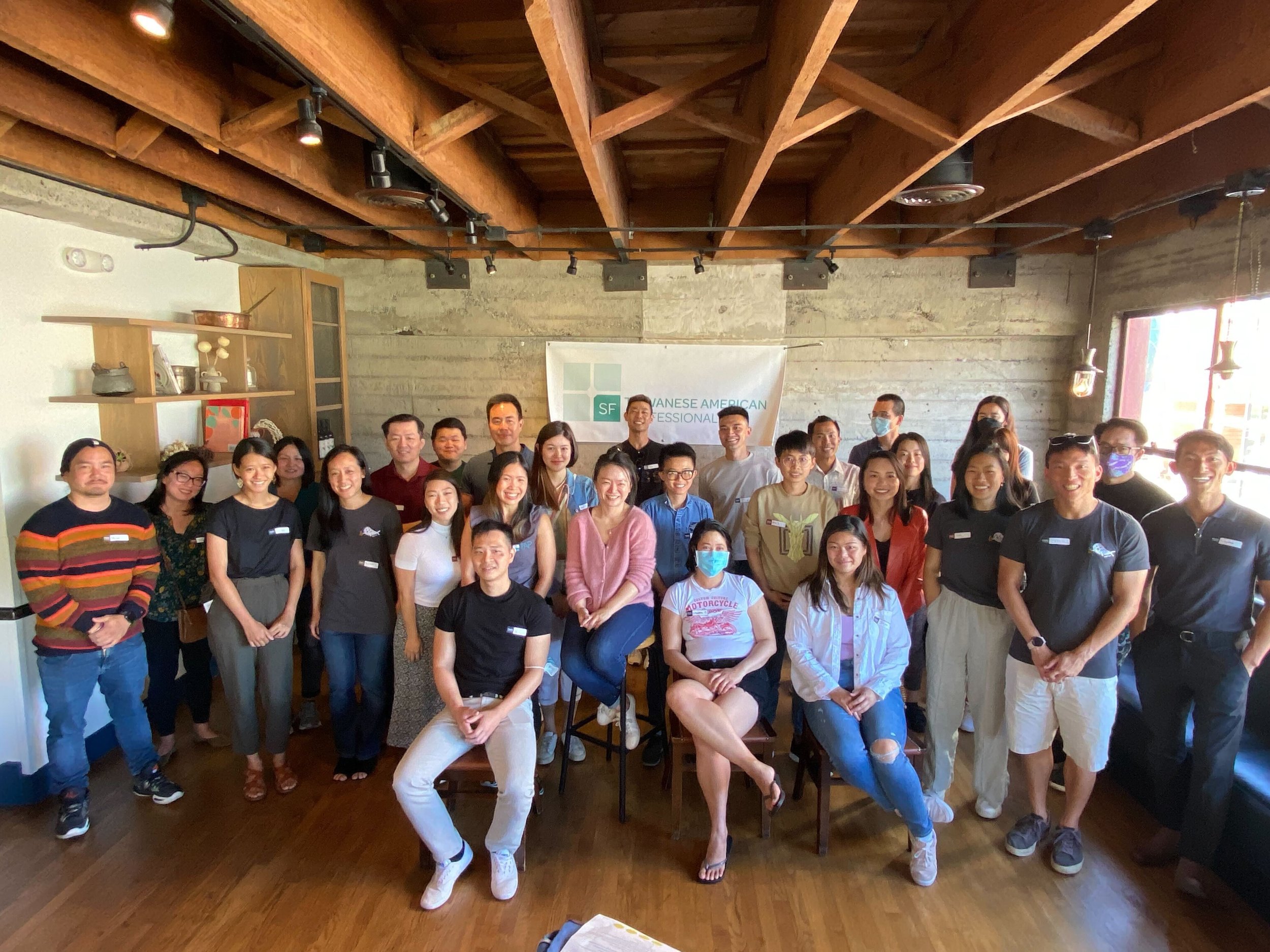
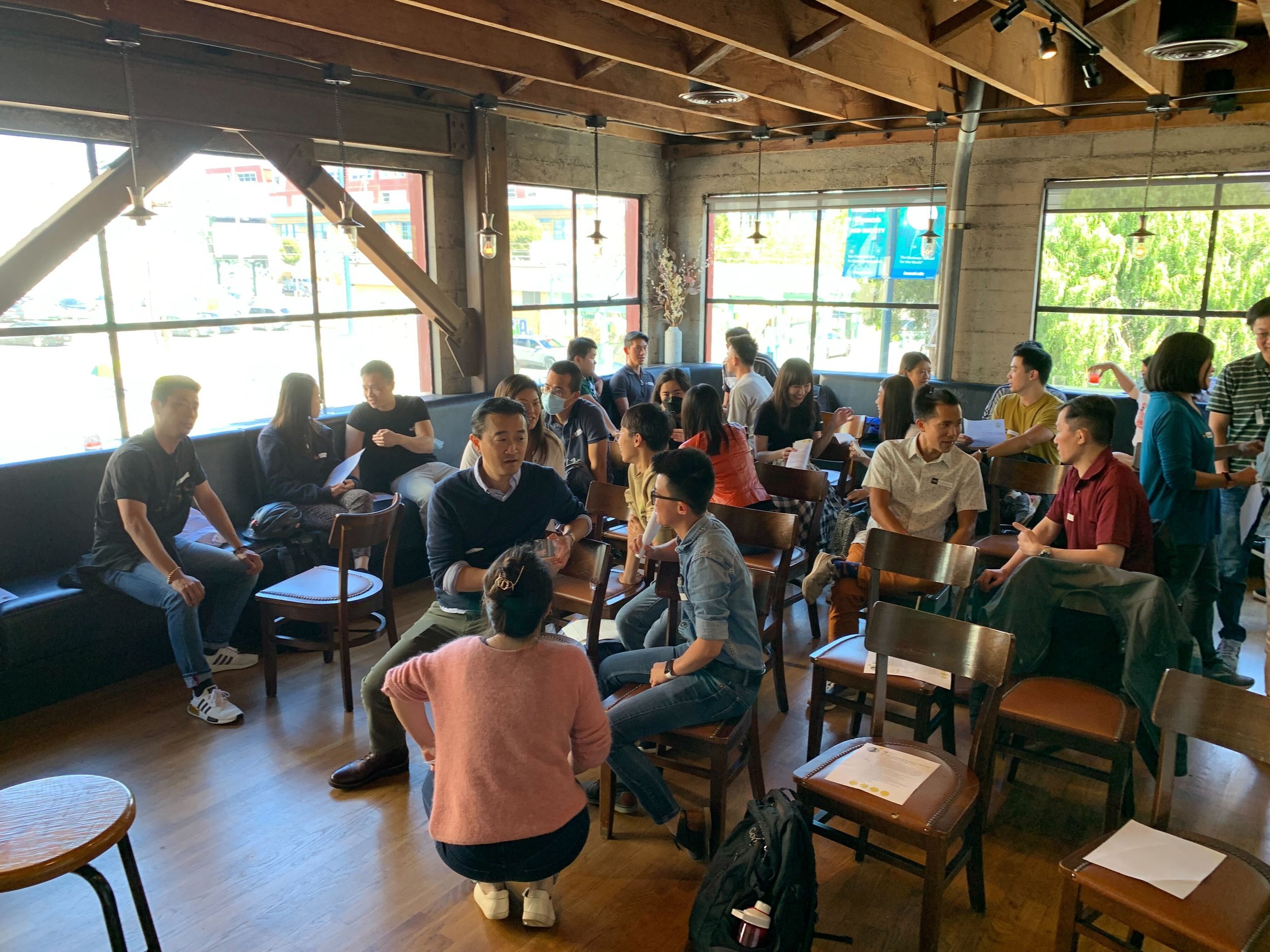
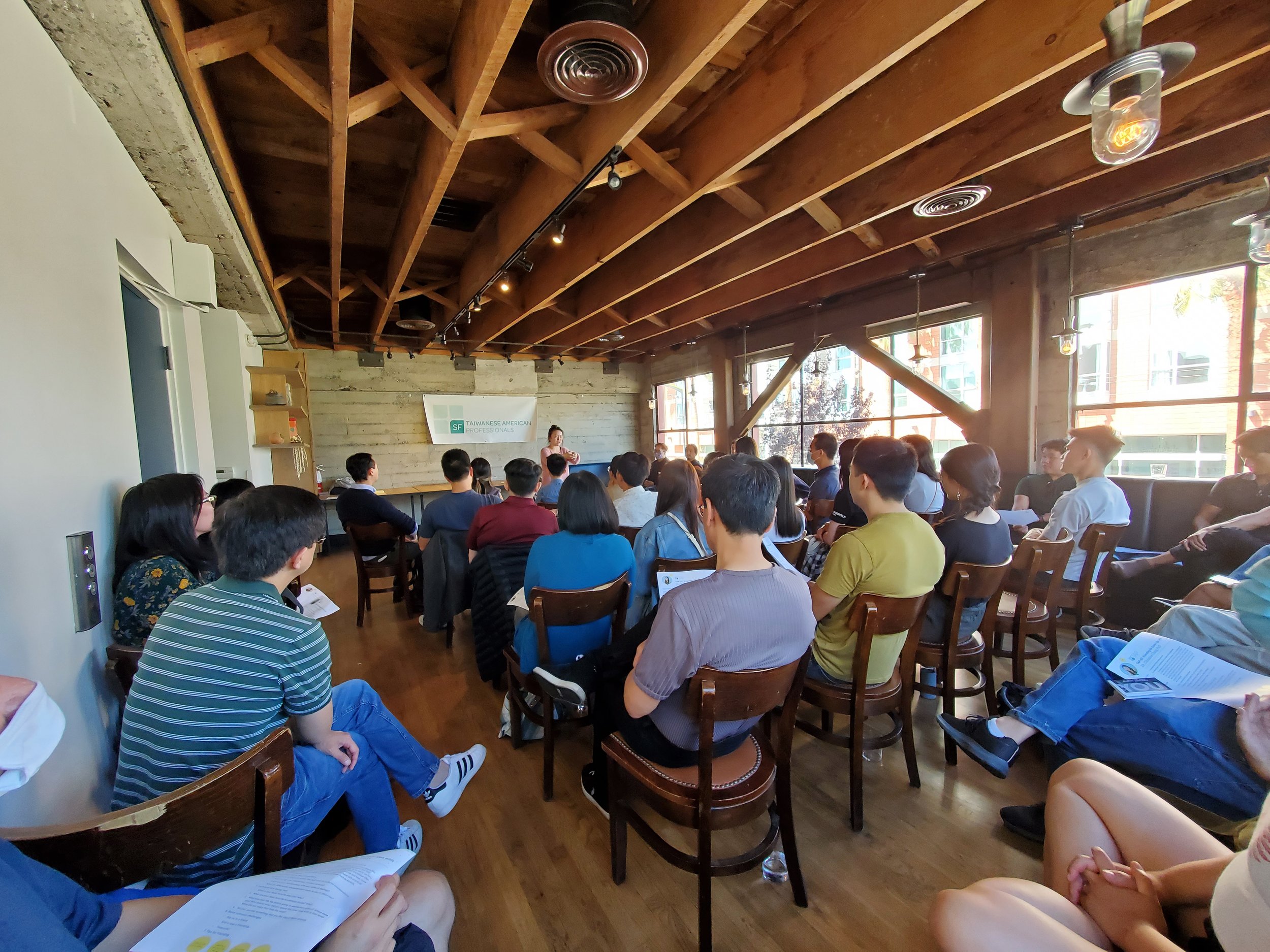
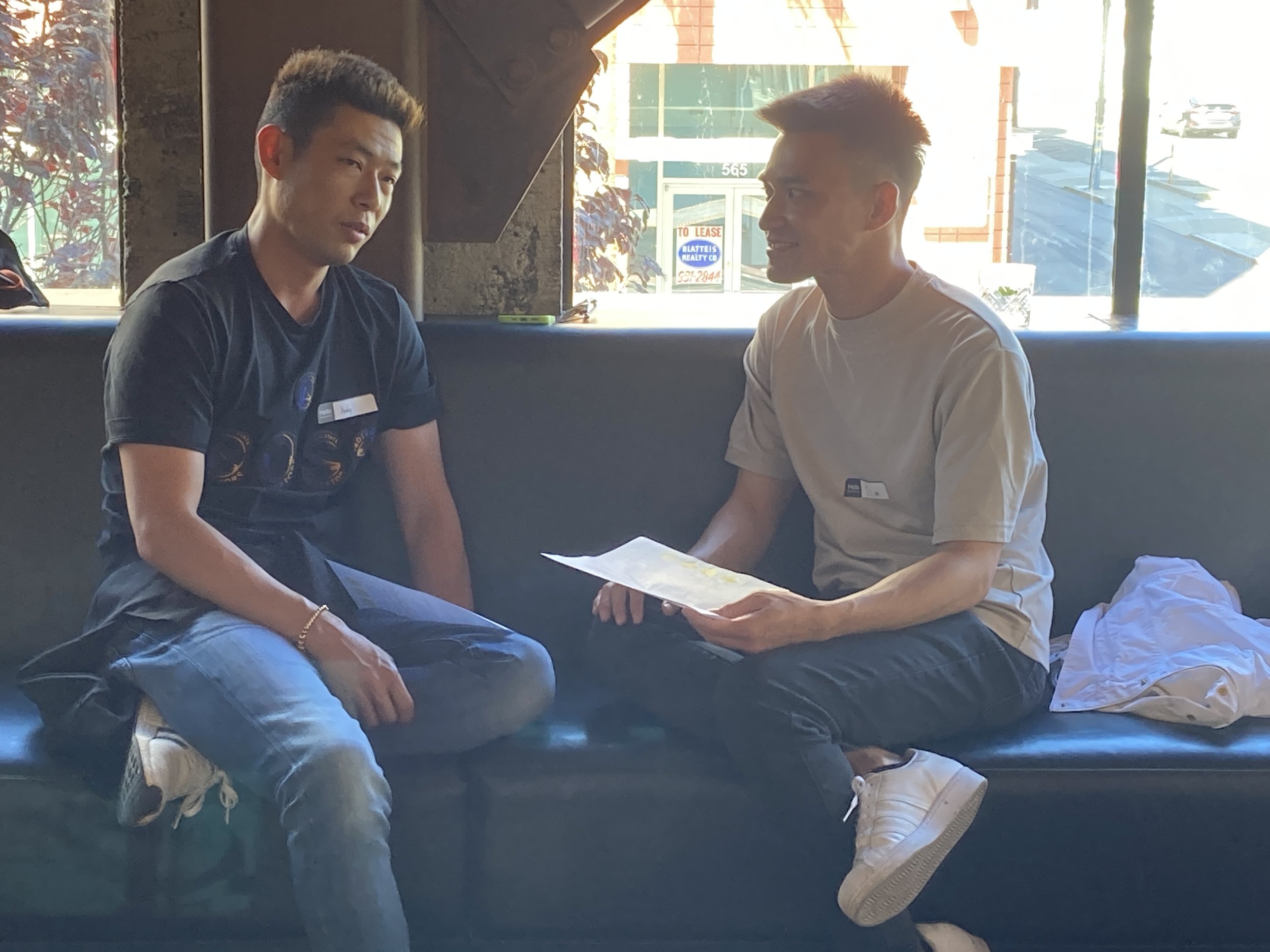
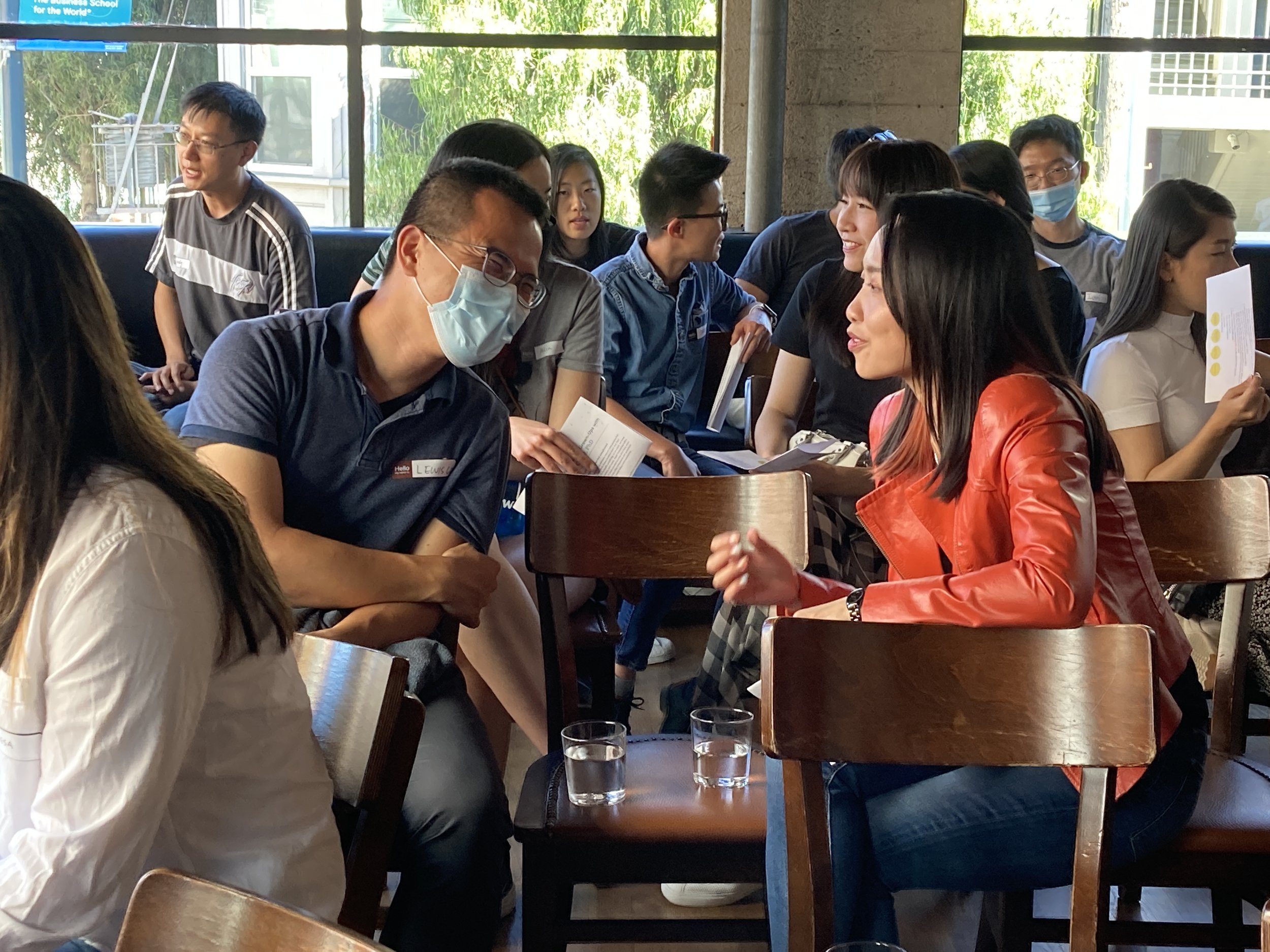
*This interview was conducted in September 2022, and has been edited for length and clarity.
Julia (TAP-SF): Hi Christine, thank you so much for being here. I’d love to start off with your background and life story so we can get to know each other a little more. You’re a therapist, and in the Asian American community, that’s a less popular profession compared to other professions. I’m curious if you could tell me how you landed where you are right now?
Christine Chang, PhD: Yes, of course. I was born and raised in Taipei, Taiwan. I finished college in Taiwan and worked there for two years before coming to the states. I did an internship at Stanford University, which brought me to the SF Bay Area and then proceeded to do my postdoc at UC Berkeley. I ended up staying and working at UC Berkeley for 6 years until I decided to leave last year. I currently live in Emeryville with my cat, Sailor.
Julia (TAP-SF): When did you become interested in the field of mental health and psychotherapy? Was it when you started studying at UC Berkeley, or before that?
Christine Chang, PhD: I studied sociology in my undergrad. Originally I wanted to become a researcher because I was interested in research surrounding mental illness, stigma, and culture. I wanted to examine how all of these concepts intertwined. Immediately after college, I worked as a counselor at a high school. I realized that one thing that brought me life was the interactions I had with people. When I worked with students at that time and when I worked with my clients now, I feel a sense of energy and that’s what I really enjoy and like.
I decided to get a PhD — in my PhD program, you have both clinical training and research training, and I wanted to explore both options more. Over the years, I just couldn’t resist the fact that I liked clinical practice much more than being a researcher. Research is important work, but I felt that I could offer the best of myself in a clinical setting. When I work with clients, I am present with their presence, and that makes me want to grow and improve myself as well.
Julia (TAP-SF): That’s really amazing. It’s so fascinating when we gain experiences that influence a pivot in either our professional or personal lives. I’m glad you were able to find your niche!
You mentioned your early interest in mental illness and culture, and also growing up in Taiwan before immigrating to the states to pursue your PhD. In what ways does your background and Taiwanese upbringing affect your therapy approach? How do you leverage your background when practicing culturally-informed care with your clients?
Christine Chang, PhD: There are two things for me with this question. First, I think Taiwan has its own unique historical and geological position, heavily influenced by big powers such as China, Japan, and the US. The Taiwanese experience is unique. Secondly, to me, identity is not just a label or a check-box; identity shifts over the years. At first, I viewed myself more as an immigrant and now, I identify more as a Taiwanese American.
These two things being said, in my clinical practice, I go in with this understanding because of my lived experiences as a Taiwanese and as a Taiwanese American here in the Bay Area. I go in with a lot of curiosity with my clients. What is it like for them? I know what it’s like for me, growing up, with my parents a certain way, but what about you? I aim to make room for my clients to explore, even though I have the understanding and knowledge of our culture. I’m curious to know, what are their experiences? What do they feel? What do they think? Sometimes, I want to offer a new lens leveraging my background and identity as well.
What this understanding offers is also a sense of safety. As a therapist, I want to be careful and ask myself “is my understanding stereotyped”? I want to make sure that I make room for my clients to explore what their experiences mean to them, without stereotyping what their experiences might be. That cultural understanding to me is offering the safety for my client to explore that.
Julia (TAP-SF): It’s so important for clients to have that safe space so that they can explore for themselves what certain experiences mean to them.
Christine Chang, PhD: Definitely.
Julia (TAP-SF): Well, as a professional in the mental health field, I’m sure you know that mental health is a growing topic nowadays and people are realizing the need for a more holistic approach to care. In your opinion, what’s the importance of mental health in today’s environment?
Christine Chang, PhD: Mental health is important because it’s people’s calling to be human. We have that yearning to be seen, viewed, and perceived as human beings. Not everything is, or should be, about just my physical body, or just my productivity. I see the importance of mental health as a cry out loud — we want to be human! Where’s the humanity and humanness? That’s the desire in today’s environment and this is the trend that I see us going in.
Julia (TAP-SF): Absolutely. It’s great to hear your predictions for the future of mental health, as it sounds like this is just going to allow for more space to hold conversations around mental health and provide more community for holistic care practice.
Despite the growing conversations around mental health, there has been (and continues to be) a longstanding stigma surrounding mental health care and therapy in the Asian community. How is this narrative changing, and what can we do to help destigmatize this topic?
Christine Chang, PhD: The stigma is real, and comes from sources that are serious and traumatic. Not long ago, the government could deem someone to have a mental illness, and then make you disappear! It wasn’t really about whether you had a mental illness. It was more you're different and deviant — so now you are excluded and even erased. This stigma tells me that there’s fear. There is fear around mental health care, around mental illness, about sharing what’s going on in my mind and in my heart. And that fear comes from a collective trauma.
I think what we can do is give more permission. Allow people to share their fears. Personally, I am an honest and transparent person, so I also want to share and model my own experience with others. Whether we are therapists, or clients, I want everyone to foster and model the permission to share your own experiences.
Julia (TAP-SF): That’s great advice. I feel like I need to act on this more myself, because you’re absolutely right — we can only start destigmatizing this topic if we have more people engaged in the conversation.
Let’s shift to the event. Making friends as an adult! Do you feel that this is a common issue? Why do you think that most adults generally have a harder time making genuine friendships as we age?
Christine Chang, PhD: Adult life is complex and complicated, so that makes adult friendships more complicated too, in the sense that roles and responsibilities become intertwined with these friendships. As a kid, my friends are just my classmates who are sitting next to me, but as an adult, I’m thinking ‘I actually need to be friends with my kids’ parents because our kids like each other’. Or, I’m thinking ‘Hey I need to have some friends or people that I can trust at the workplace’. There’s different needs and responsibilities that get intertwined with making meaningful connections. This makes it hard as adults, because there’s a lot of stress and pressure. We also will feel lonely and want to make friends, but making friends really takes some heart. It’s sad to say, but for some people, it can feel like a luxury to make friends as adults. It’s hard.
Julia (TAP-SF): That’s definitely tricky, because it seems like so many variables need to align in order for these friendships to emerge! It’s like you almost need the right time and the right moment in order to make any meaningful connections as adults. And of course, people need time to make friends and build that relationship, yet as adults, we don’t have a lot of extra time!
Christine Chang, PhD: And then there’s a readiness factor too. Like, am I ready to make friends? How many friends am I ready to make or connect with at this time? What does a meaningful connection mean to me at this point of my life? Because making friends takes a lot of mental energy and practical concerns that we don’t always have.
Julia (TAP-SF): Man, adulting is hard! Well that’s not news to anyone, I’m sure, but I’m glad that we can affirm, from multiple angles, why being an adult is so difficult.
So we can have these relationships, but what we really want are healthy relationships. I’d love to hear from you, what are some qualities that you feel contribute to healthy relationships, whether that be friendships or otherwise? Is there anything that you can share to help those who are either struggling to make deep connections or even those who struggle to retain connections?
Christine Chang, PhD: There’s a few things that are important to a healthy relationship. The first is definitely communication. Communication in the sense of allowing for self-disclosure from both parties, and communicating in a way that two people can allow for different needs and values to be expressed in the relationship.
There’s also the element of curiosity. In a relationship, we need to make room for curiosity before judgment given that as adults, we have different experiences that may have shaped us to be who we are presently. Give yourself space to be curious in a relationship before judging someone.
And finally, we need to be connected with reality. That’s a big thing in my opinion. If you’re not happy with a particular friend, or if you are unhappy in a relationship, it’s important to acknowledge your own feelings and take care of yourself. Recognize that unhappiness; allow that reality to sink in and tell yourself that I need to do something to take control of my own happiness in this situation.
Julia (TAP-SF): That last point is a really good one that I’ve not thought about before. That almost seems like the most important one — you should be taking charge of your own experience in these friendships and relationships, because the minute that you don’t, there’s great potential for the quality of the relationship to decline.
I want to close off with one last question, and this will be more for those who weren't able to attend your event. What are the top 3 takeaways about making friends as an adult that you’d like our community to walk away with?
Christine Chang, PhD: There are three takeaways I’d like to share.
1) Listen with spaciousness. Active listening is important so let’s make the space to listen to others in these friendships, and vice versa.
2) Share with grace, not only for yourself, but also for others.
3) Be creative and experimental. Not everyone you meet will be a good friend candidate and know that as adults, you can also get creative with the way you build your friendships.
Julia (TAP-SF): That’s amazing, and I so appreciate you sharing your expertise today and providing these tangible tidbits that our audience can walk away with. Thank you so much, Christine.
Christine Chang, PhD: Thank you to TAP-SF for having me.
About Dr. Christine Chang, PhD:
Dr. Christine Chang is a licensed psychologist in the SF Bay Area. Born and raised in Taiwan, she moved to the US and continued her training in mental health research and clinical practice. She has extensive experience working with individuals dealing with anxiety, stress, grief and loss, relationship difficulties, attachment trauma, existential/spiritual issues, and minority/immigrant experiences. She provides individual and couples therapy, and is bilingual in Mandarin and English.
You can follow her on instagram @christinechangphd.
Sound Baths and VR: January #Snapshot
The new year brings new events — but we’re still having all the same fun! We promised our community a fresh slate of events and activities this year and we’ve started delivering. 😉 From sound baths to virtual reality experiences, see how TAP-SF kicked off our 2023. Here’s our January #snapshot.
#Snapshot is a monthly blog series by TAP-SF featuring a roundup of our latest events, activities, and experiences.
The new year brings new events — but we’re still having all the same fun! We promised our community a fresh slate of events and activities this year and we’ve started delivering. 😉 From sound baths to virtual reality experiences, see how TAP-SF kicked off our 2023.
Here’s our January #snapshot:
January 15: Sandbox Virtual Reality Game Day
There’s no escape from reality — or is there? In an intense session of VR, Team “Tappy Seals” successfully defended Hong Kong and the Earth in 2088! Despite the plethora of ferocious alien creatures, nothing could outmatch our team spirit…a type of esprit de corps that included lots of friendly fires and occasional fratricide.
After the VR experience, attendees gathered at the posh food court in Hillsdale mall to chat and enjoy bites of poke, tacos and boba.
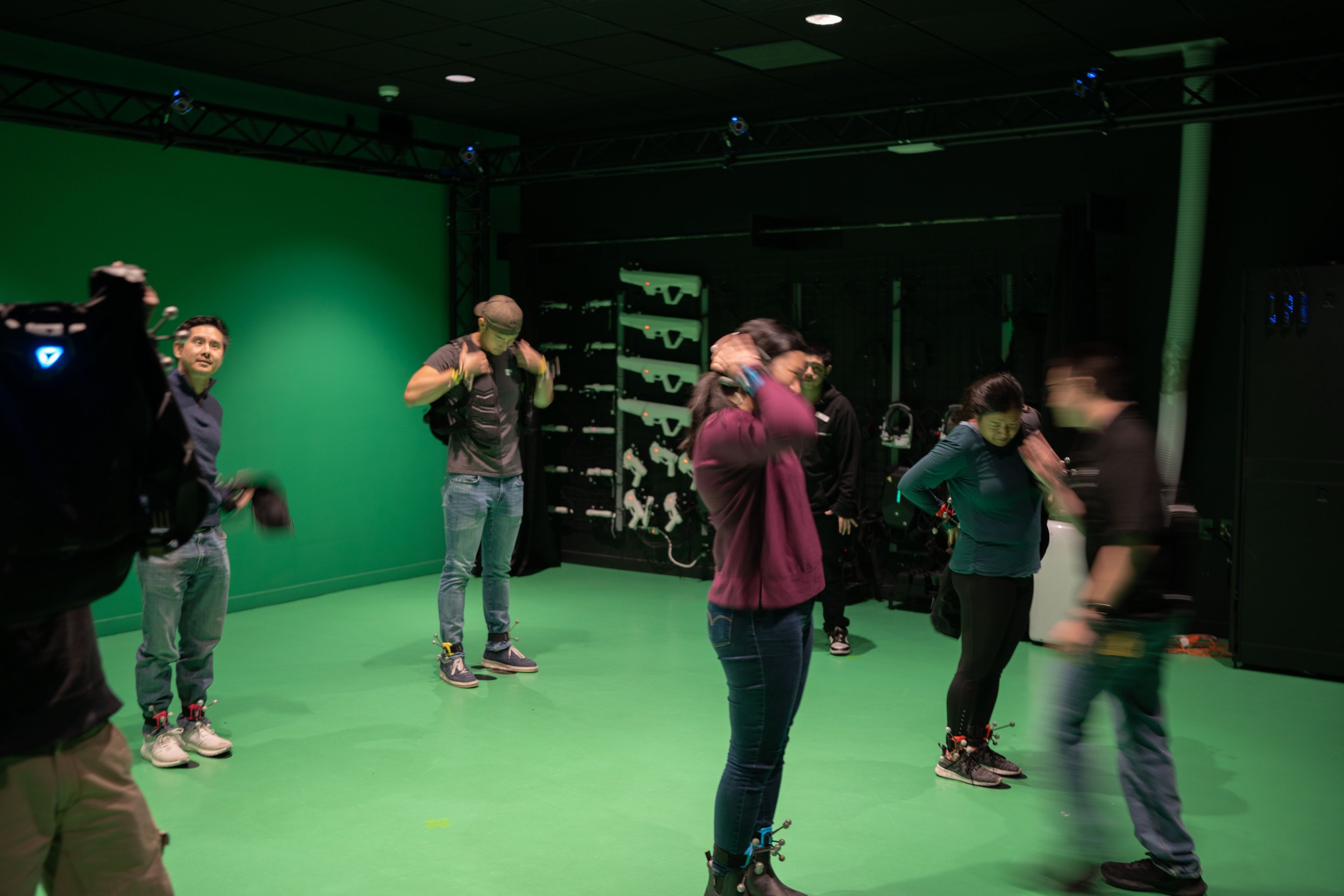
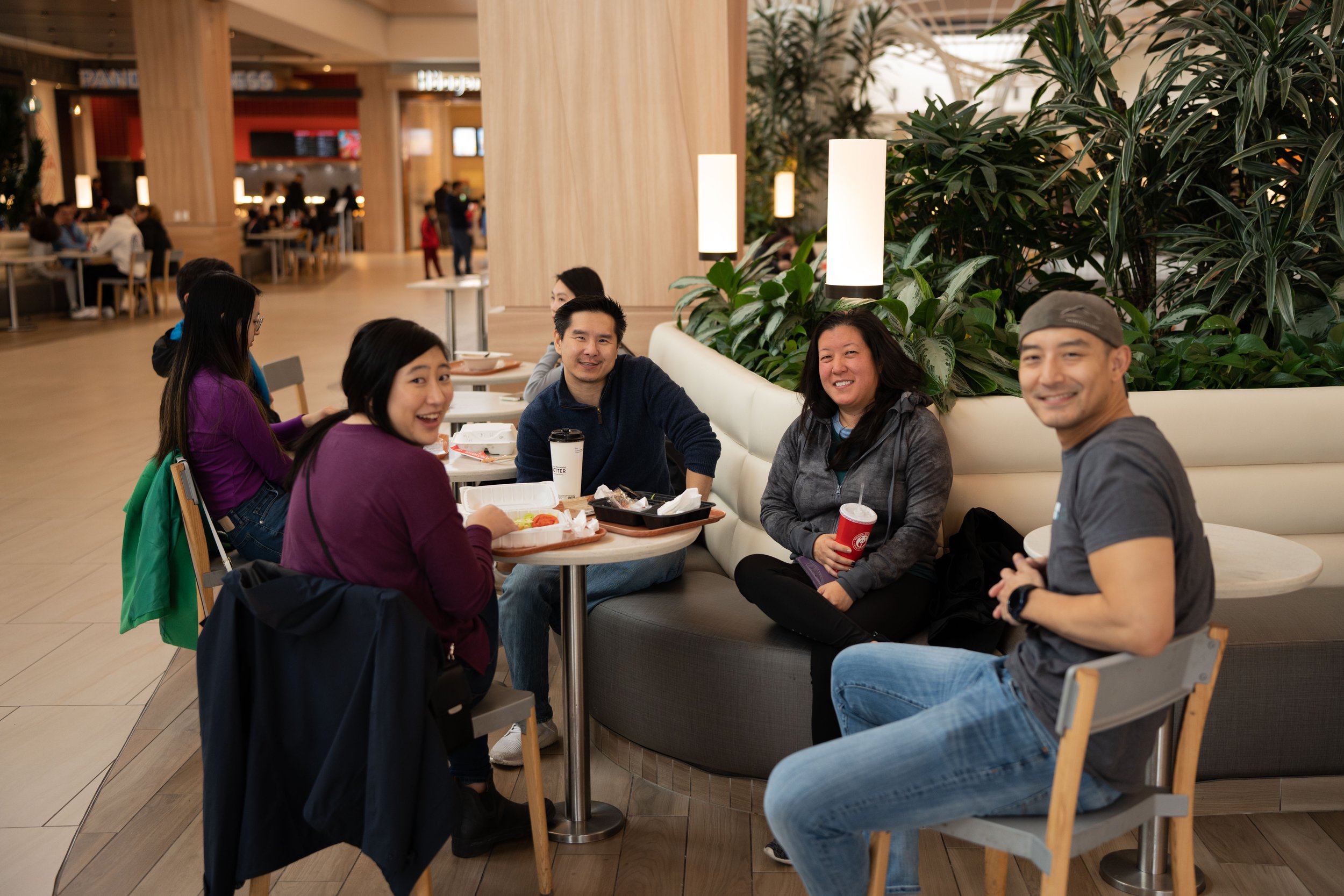
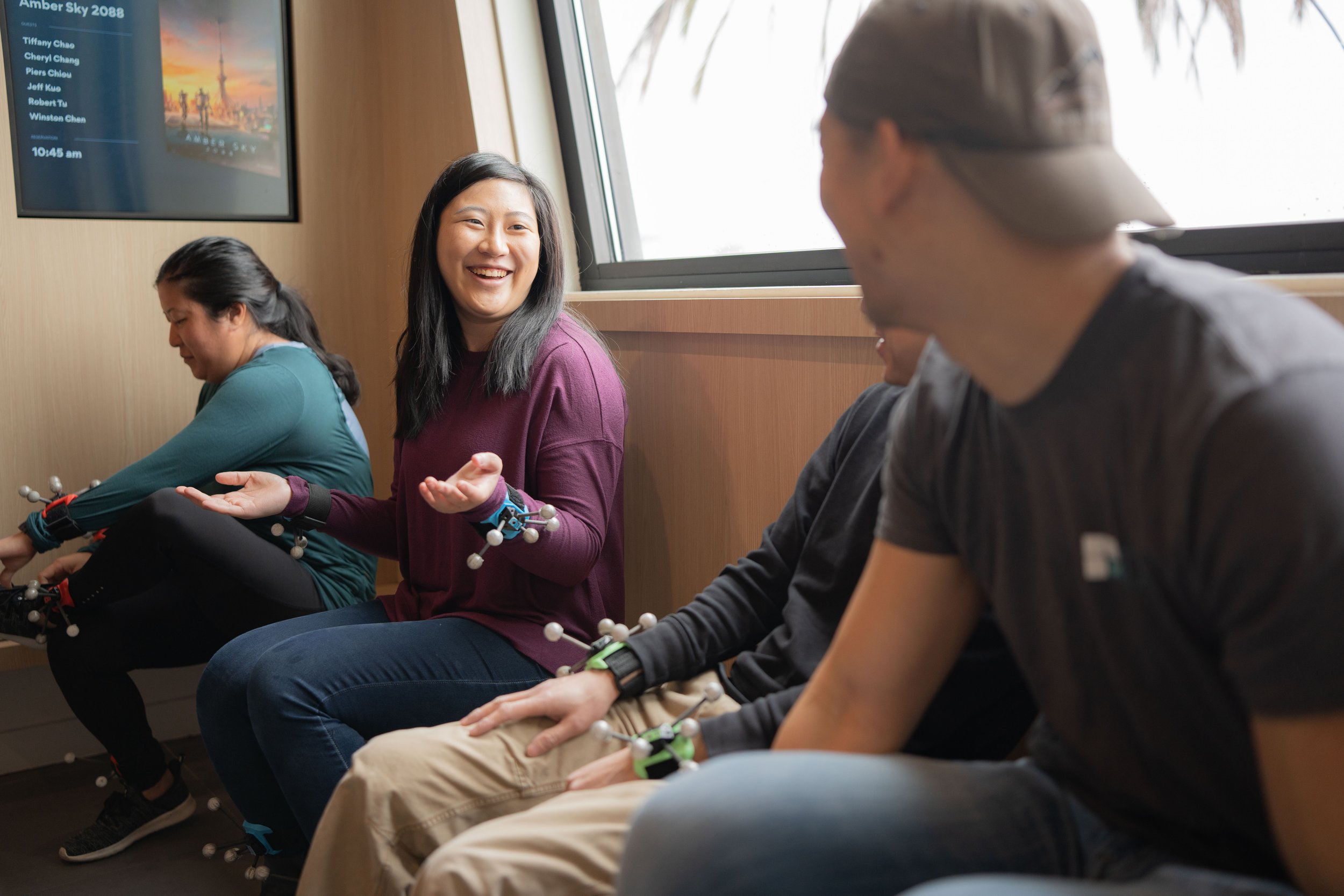
January 22: Board Games at Cataldi Park
What better way to roll into the (lunar) new year than with some casual — and competitive! — fun playing board games at the park! On this bright and sunny afternoon, social committee member Edward invited a small gathering of community members to play crowd favorite board games like Monopoly Deal and Forbidden Island at San Jose’s Cataldi Park. Nothing like a healthy dose of competition to kick off the Lunar New Year, are we right?
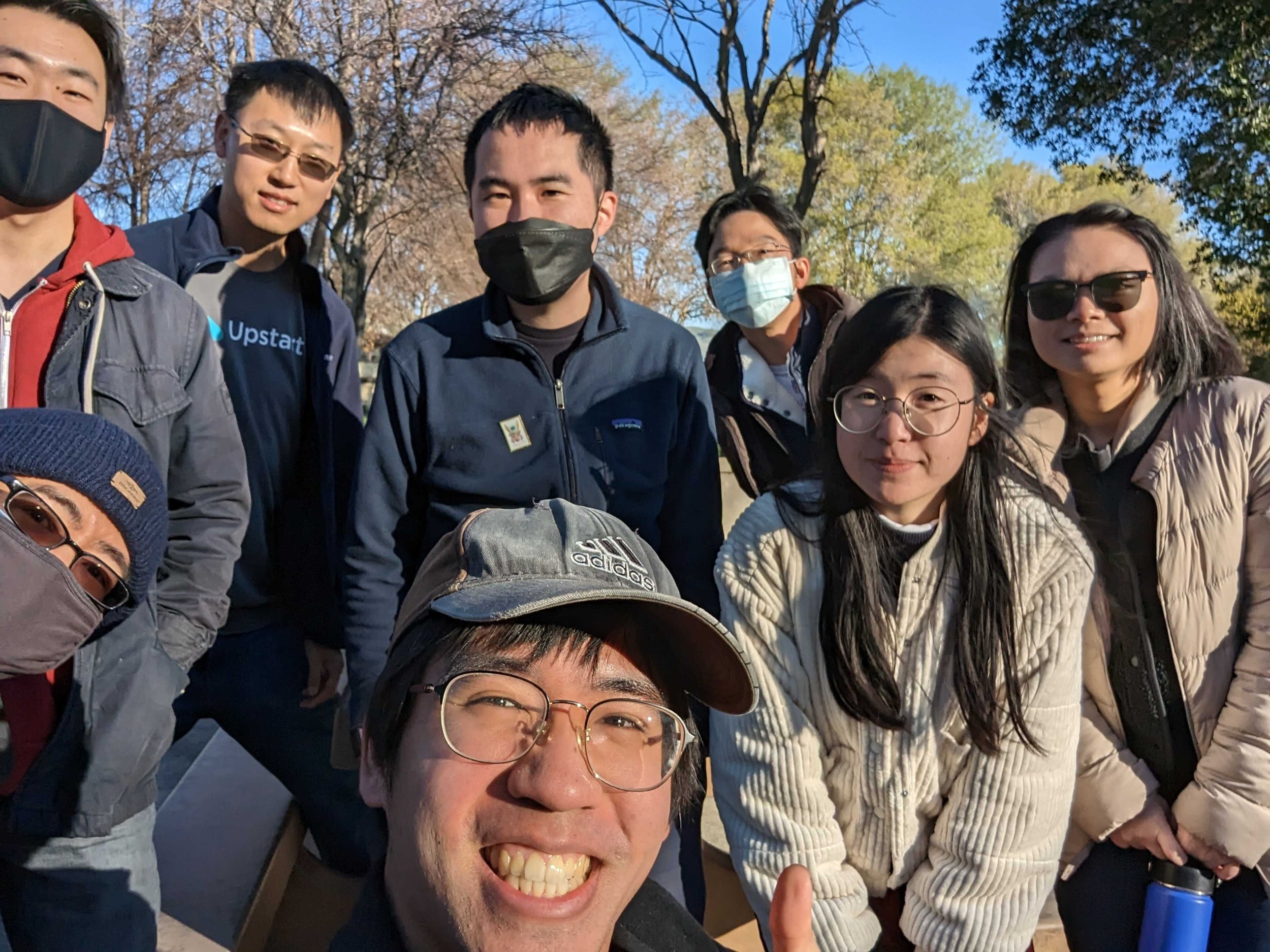
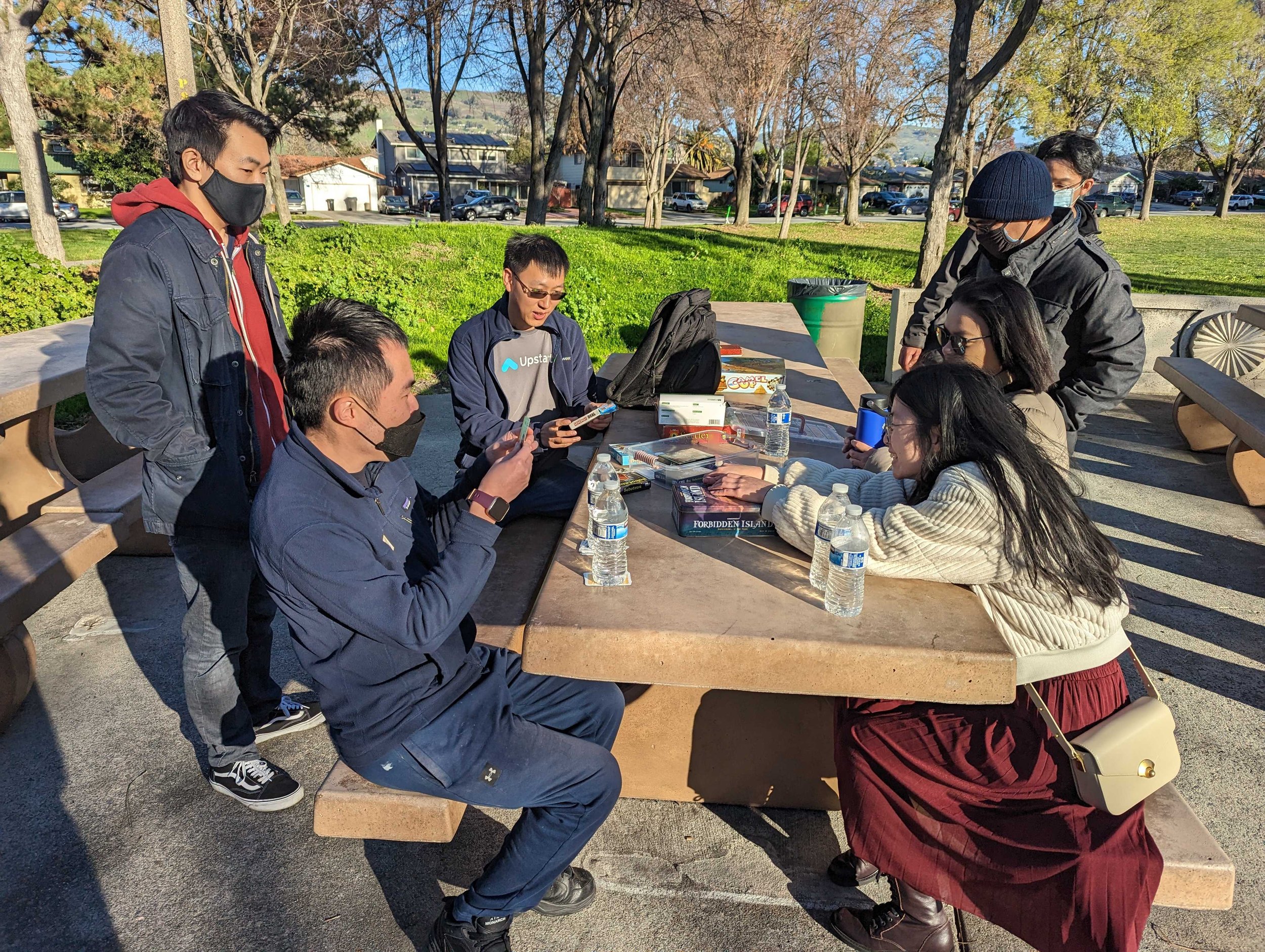
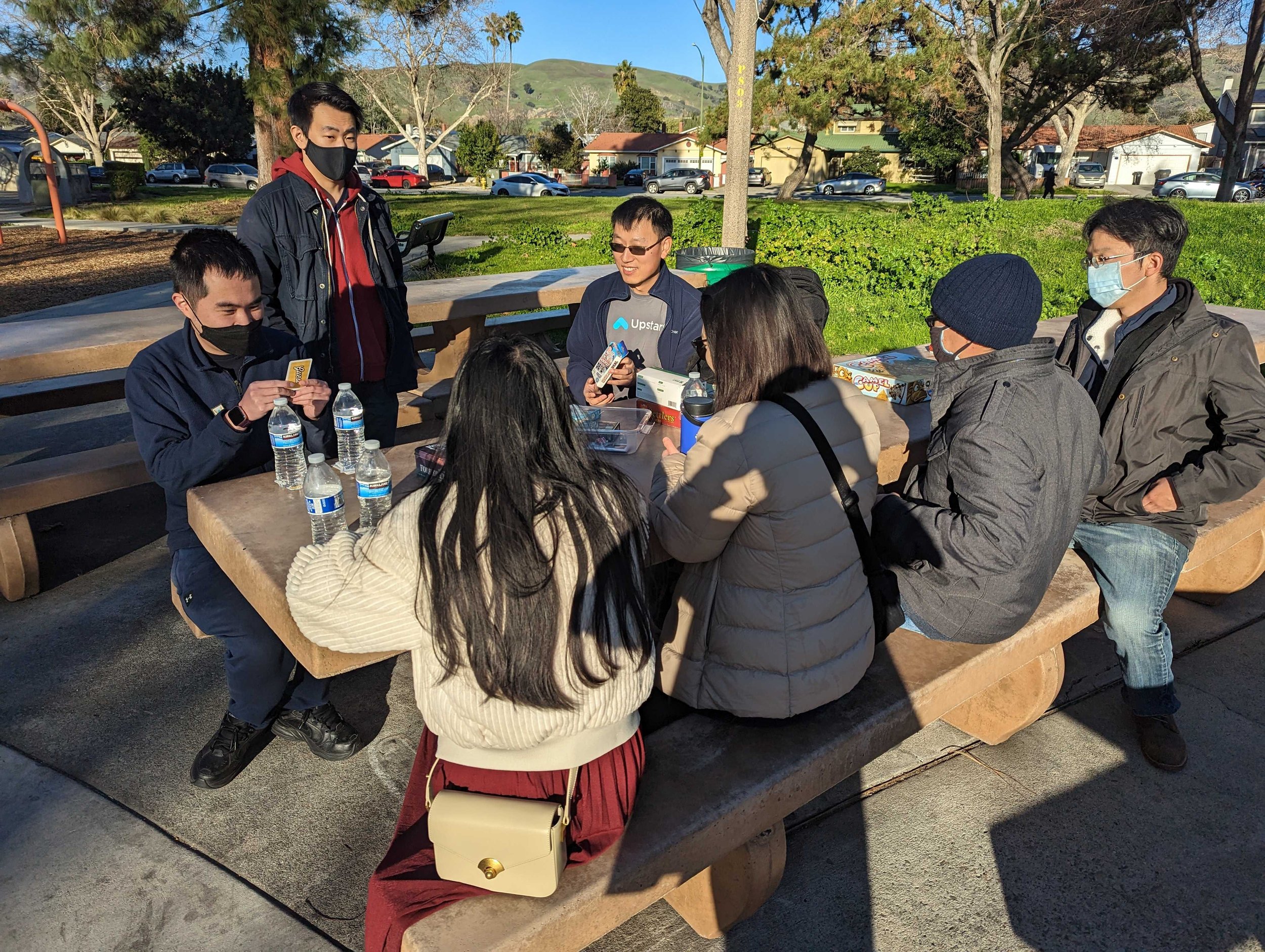
January 23: Sound Bath
A small group of TAP-pers discovered the healing power of sound through a meditative sound bath experience at Grace Cathedral. After everyone’s energy was cleansed and rebalanced, we then headed off to chat and converse over a delicious hot pot dinner.
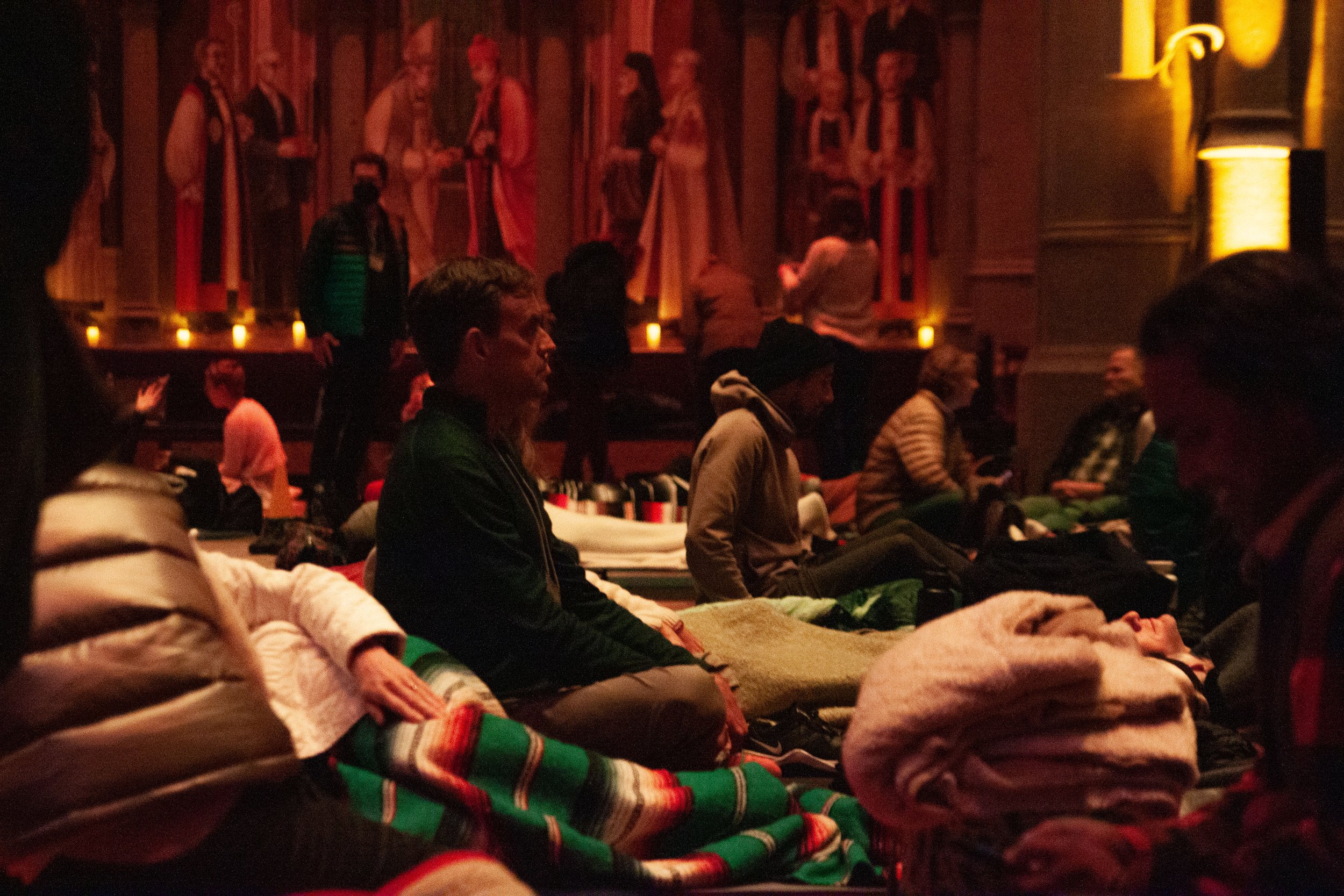
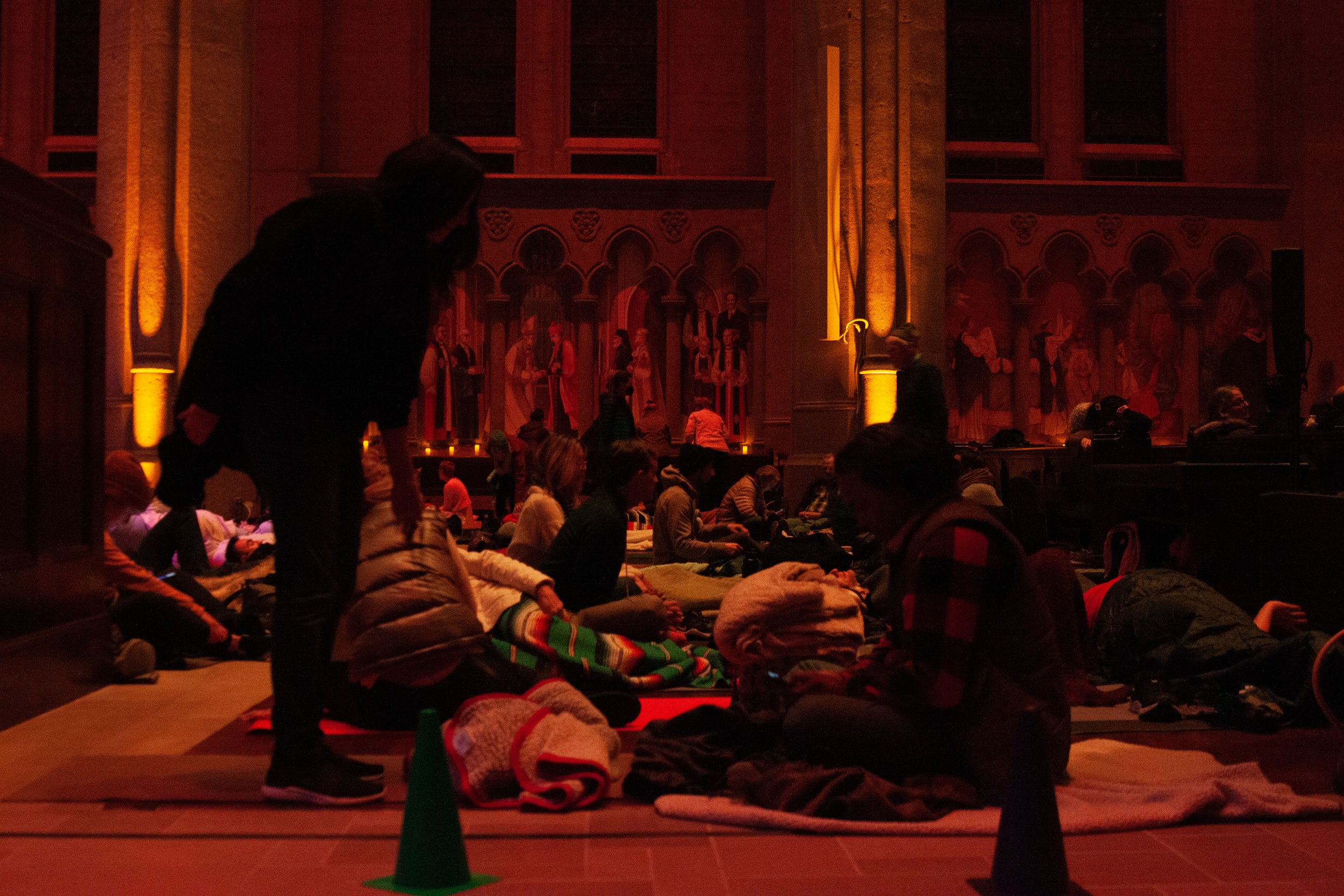
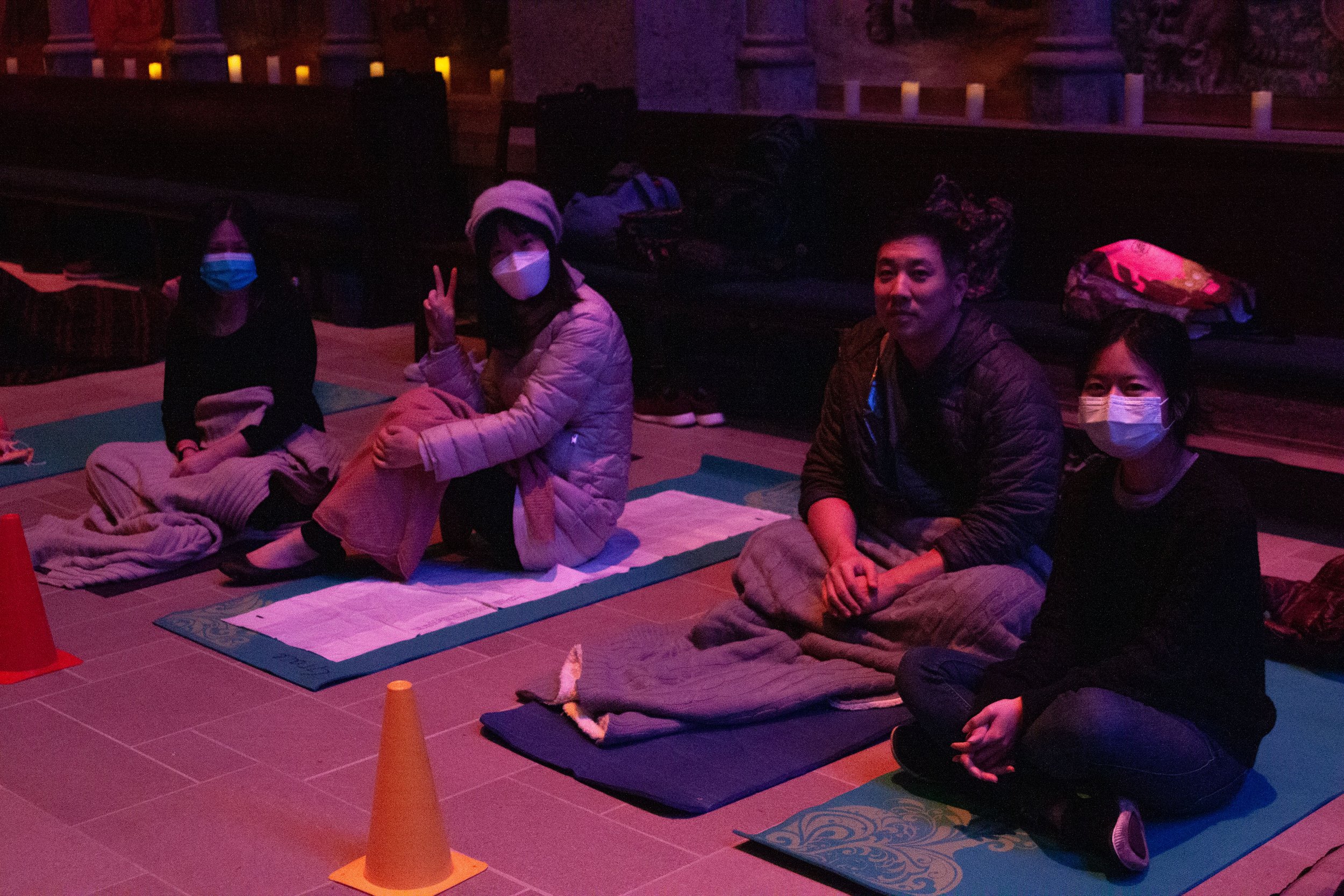
#Snapshot is a monthly blog series by TAP-SF featuring a roundup of our latest events, activities, and experiences.




